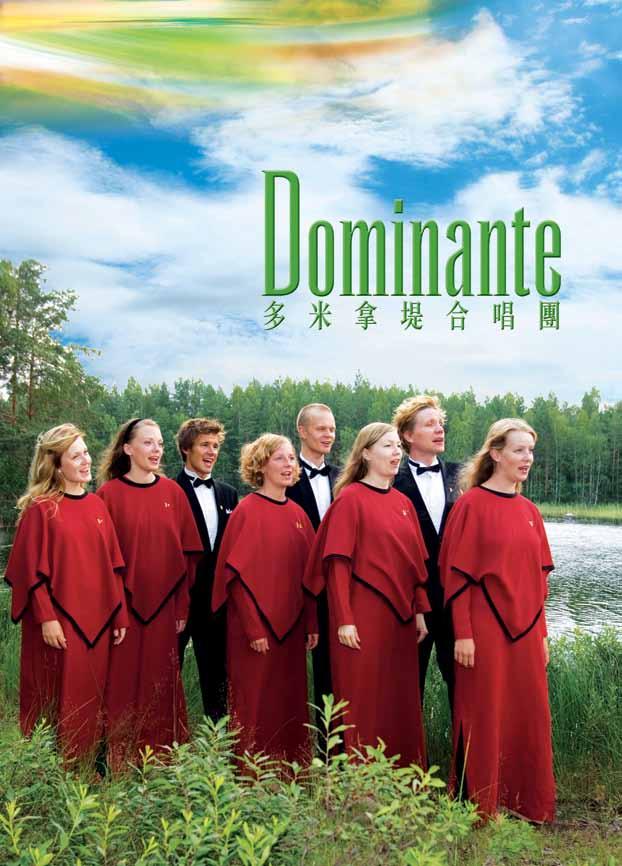

香港藝術節匯聚全城文化精髓, 是享譽亞洲的文化盛事。藝術節 絢麗多姿的節目,每年吸引無數 海內外藝術愛好者熱烈捧場。觀
眾無論以香港為家,還是慕名而 來,都不難感受箇中都會魅力。
香港藝術節雲集本地以至全球名 家傾力演出,盡展藝術才華。精 選節目包羅萬象,古今俱備,觀 眾既可欣賞當代新銳創作,更可 回味大師經典作品。
欣逢香港藝術節四十周年,可喜 可賀。謹祝各位有一個愉快難忘 的晚上。

獻辭 message
The Hong Kong Arts Festival is a highlight of our city’s cultural calendar and a widely celebrated arts event in Asia. Each year it presents a feast of exciting programmes that draw arts lovers from near and far, adding to Hong Kong’s attractiveness both as a home and a tourist destination.
The Festival is an important platform for showcasing local talent alongside the best artists from around the world. With a judicious mix of programmes, it champions new and contemporary works while celebrating great masterpieces, giving audiences much to savour.
I congratulate the Hong Kong Arts Festival on its 40th Anniversary and wish you all a truly memorable evening.
香港特別行政區行政長官
Chief Executive Hong Kong Special Administrative Region

歡迎蒞臨第40 屆香港藝術節。
作為重要的國際
文化盛會,香港
藝術節每年呈獻 世界頂尖及多元 化的表演節目。
今年榮幸再邀請
到世界各地及本
港藝術精英,帶
來舞蹈、音樂、
歌劇及戲劇等精采表演,讓觀眾可欣 賞振奮心靈的繽紛藝饌。
我藉此感謝香港特區政府、香港賽馬
會、各贊助企業及個人的慷慨資助。
踏入第40周年,香港藝術節除了雲
集世界各地的藝術界翹楚,帶來精采
演出,亦透過學生票贊助計劃及「青
少年之友」計劃,培養年青人的藝術
體驗;此舉有賴一群熱愛藝術的有心 人慷慨資助,鼓勵年青人參與藝術節
的精采演出,提升日後觀賞藝術的興 趣。
各位觀眾的支持和參與,乃驅動藝術
節向前邁進的力量。感謝您前來欣賞 本節目,希望本屆藝術節為您帶來美 好的觀賞時光。
I warmly welcome you to the 40th Hong Kong Arts Festival.
Recognised for the quality and variety of its programming, the annual Hong Kong Arts Festival is keenly anticipated as the premier event in Hong Kong’s cultural calendar. This year we again welcome top international and local talent in dance, music, opera and theatre, whose artistry will delight and inspire us.
I wish to acknowledge strong support of the Government of Hong Kong SAR, the Hong Kong Jockey Club, and sponsors and donors who make this Festival possible. At this 40 year mark, I am particularly delighted that in addition to presenting wonderful artists to a discerning public, we can also nurture young audiences through our Student Ticket Scheme and Young Friends Scheme, thanks to the contributions of donors and supporters who generously share their own love for the arts with audiences of the future.
Thank you very much for coming to this performance. Your presence is paramount to the success of the Festival, and I wish you a very enjoyable experience.

歡迎閣下蒞臨第 40屆香港藝術 節。
今年香港藝術節 呈獻的藝術名家 及精采節目,就 如香港大都會一 樣多元化又璀璨 奪目。延續四十 年的優良傳統, 我們繼續邀請
本地及國際知名的星級藝術家點亮香 港大小舞台,呈現世界豐碩的文化傳 統,豐富未來的文化面貌。
衷心感謝多年來熱心支持香港藝術節 的各界人士及團體。我們過去的成 功源自他們對藝術的熱忱,他們亦深 信豐盛多元的文化藝術生活,是香港 作為名副其實的國際大都會之重要支 柱。
感謝您與我們一起慶祝香港藝術節的 四十年。藝術節團隊向每一位支持香 港藝術節的觀眾衷心致謝,期望您盡 享連串多姿多采的節目。
It is a pleasure and privilege to welcome you to the 40th Hong Kong Arts Festival.
The array of artistic talent and programmatic content presented at this year’s Festival is as diverse and multi-faceted as the city which has hosted this annual event in the course of four decades. As we add to the roll call of local and international luminaries who grace our stages, we continue to draw upon the impressive traditions available to us, and work to augment a heritage for the future.
I am deeply grateful to many individuals and institutions for their contributions to the Festival’s success over the years, informed by a love for the arts and an appreciation of how important it is for a major city worthy of that description to have a rich cultural life.
Thank you for being here to celebrate forty years of the Hong Kong Arts Festival. The Festival would not happen without its audience. The entire Festival team appreciates your contribution to the 40th Hong Kong Arts Festival and hopes that you enjoy many wonderful performances.
Charles Lee, Chairman
Tisa Ho, Executive Director
香港藝術節資助來自: The Hong Kong Arts Festival is made possible with the funding support of:
多米拿堤合唱團 Dominante
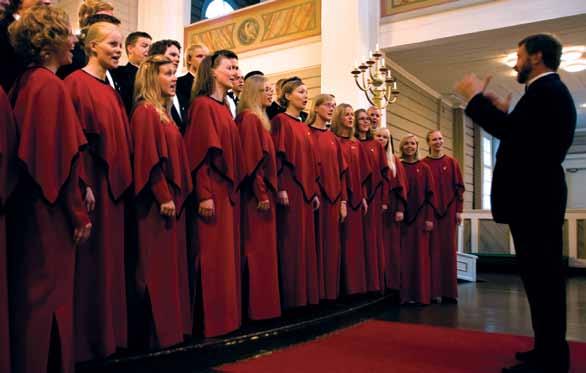
多米拿堤合唱團是芬蘭最著名的合唱 團之一,於1975年在赫爾辛基理工學 院成立,當時是一個由學生組成的合 唱團。而現在合唱團的大多數成員仍
然是來自阿爾托大學、赫爾辛基大學 和西貝流士學院的學生。
1981年起,塞波.莫托開始擔任多米 拿堤的音樂總監。過去的三十年來, 多米拿堤帶來了豐富的作品,從傳統
到超現代、從音樂劇到管弦樂均全面 覆蓋,也因此在芬蘭備受青睞。合唱 團的專業聲樂教練為成員提供個人聲
樂特訓,保證了合唱團的獨特聲音。
多米拿堤近期與芬蘭國家歌劇院、芬 蘭電台交響樂團、赫爾辛基愛樂樂
團、塔皮奧拉交響樂團及拉合迪交響 樂團聯袂演出,也與尤卡.佩卡.薩 拉斯特、薩格士譚和利靈等指揮家合
作。2007 年8 月多米拿堤參加BBC 古
典音樂節,在倫敦皇家亞伯廳與拉合
Dominante is one of the most well-known mixed choirs in Finland. Founded in 1975 as a student choir within the boundaries of the Helsinki University of Technology campus, it still consists mostly of students of Aalto University, University of Helsinki and the Sibelius Academy.
Dominante has been conducted by Music Director Seppo Murto since 1981.
During these three decades Dominante has become a desired choral performer in Finland thanks to its versatile repertoire ranging from traditional to ultramodern choral music and from musicals to orchestral works. Individual vocal training led by Dominante’s professional vocal coaches is also very important in shaping the unique sound of the choir.
Recently Dominante has worked with the Finnish National Opera, the Finnish Radio
迪交響樂團和指揮奧斯莫.萬斯合作 表演。
多米拿堤每年均舉行世界巡演,除南 極之外,所有大洲各國均曾越洋演 出。最近的海外演出是2009年11月的 南韓港澳之旅和2011年的丹麥之旅。
多米拿堤的歌曲被收錄於20 多張唱片 中。 2009 年,憑藉無伴奏唱片《輕 柔》獲得芬蘭合唱總監協會的年度唱 片大獎。於2010 年參與BIS 唱片公司 的西貝流士作品全集錄製。多米拿堤 在這些作品中的男女混聲合唱表現獲 得歐洲樂評人廣泛稱讚。
多米拿堤鼓勵團隊成員參與小樂團活 動,合唱團下屬的四重唱和八重唱曾 多次在國家比賽中獲獎。多米拿堤合 唱團的精髓在於小夜曲和台下演唱, 它們讓全世界觀眾都記得這隊年輕、 活躍又敬業的合唱團。
中譯:葛欣
Symphony Orchestra, Helsinki Philharmonia, Tapiola Sinfonietta, and the Lahti Symphony Orchestra with conductors such as JukkaPekka Saraste, Leif Segerstam and Helmuth Rilling. In August 2007 Dominante performed in the Royal Albert Hall of London together with the Lahti Symphony Orchestra and Osmo Vänskä as part of the BBC Proms festival.
Dominante tours annually and has visited countries in every continent, except Antarctica — penguins beware! The most recent tours have taken Dominante to South Korea, Hong Kong and Macau in November 2009 and to Denmark in 2011.
Dominante has appeared on more than twenty recordings. For its latest a cappella recording titled Lempeä , Dominante was given the Record of the Year award by The Finnish Choral Directors’ Association in 2009. In 2010 Dominante participated in the recordings of the complete works of Jean Sibelius for the BIS record label. Dominante’s performances of these choral works for mixed choir have been critically acclaimed across Europe.
Dominante encourages its members to take part in vocal group activities and many of the choir’s quartets and quintets have won prizes in national contests. The serenades and off-stage singing are essential parts of the "Spirit of Dominante" that ensures people all around the world remember this youthful, dynamic and dedicated group of singers.
3.3.2012 - Concert 1
屈德紐斯 (1972-)
《我是大太陽》
《秋》
顧拉 (1883-1918)
《日出》
羅塔瓦拉 (1928-)
《洛爾卡組曲》
1. 《騎士之歌》
2. 《尖叫》
3. 《月亮升起來》
4. 《馬拉加》
曼提耶爾維 (1963-)
《四首莎士比亞的歌》
1. 《降臨吧,死神》
2. 《搖籃曲》
3. 《不憚辛勞不憚煩》
4. 《五噚》
《CCCX》
中場休息
Jussi Chydenius (1972-)
I am the Great Sun
Autumn
Toivo Kuula (1883-1918)
Auringon noustessa (At Sunrise)
Einojuhani Rautavaara (1928-)
Suite de Lorca (The Lorca Suite)
1. Canción de jinete (The Rider’s Song)
2. El Grito (Scream)
3. La luna asoma (The Moon Rises)
4. Malagueña (Malaguena)
Jaakko Mäntyjärvi (1963-)
Four Shakespeare Songs
1. Come Away Death
2. Lullaby
3. Double, Double Toil and Trouble
4. Full Fathom Five CCCX Intermission
夏法爾 (1933-)
《那西賽斯與厄可》
獨唱:伊渣.普高(演繹泰瑞西斯)
喬納.科儀提恩(演繹那西賽斯)
韋達克 (1970-)
《水之夜》
伯格曼 (1911 2006)
《拉波尼亞》,作品 76
〈仲冬〉*
獨唱:貝利.基維沙利 (男高音)
伊渣.普高 (男中音)
西貝流士 (1865 1957)
《愛人》
獨唱:羅拉.所羅華拉 (女高音)
伊渣.普高 (男中音)
托馬士 (1930-)
《鐵之咒》
獨唱:昂蒂.庫努提 (男高音)
伊渣.普高 (男中音)
R Murray Schafer (1933-)
Narcissus and Echo
Soloists : Tiresias by Elja Puukko Narcissus by Joona Koistinen
Eric Whitacre (1970-)
Water Night
Erik Bergman (1911 2006)
Lapponia Op 76
Midwinter *
Soloists : Pyry Kivisaari, tenor
Elja Puukko, baritone
Jean Sibelius (1865 1957)
Rakastava (The Lover)
Soloists : Laura Salovaara, soprano
Elja Puukko, baritone
Veljo Tormis (1930-)
Raua needmine (Curse upon Iron)
Soloists : Antti Knuuti, tenor
Elja Puukko, baritone
*歌曲沒有歌詞。This song does not have lyrics.
演出曲目或次序或有更改
Songs and their order of performance are subject to change
Dominante’s
屈德紐斯 Jussi Chydenius
屈德紐斯是芬蘭音樂家,擅長唱歌和作曲。他是無伴奏六重唱團Rajaton (「無拘無 束」)的創團成員。他的合唱作品集合了不同音樂風格,着重文字及歌曲的可唱性。
Chydenius is a Finnish musician, singer and composer. He is also the founding member of the six - voice a cappella ensemble Rajaton In his choral works Chydenius combines different music styles with an emphasis on the text and how singable the music is
《我是大太陽》I am the Great Sun(2005) 《我是大太陽》是多米拿堤合唱團的委約作品,於2005 年首演,同時亦收錄在唱片 Lempeä (「輕柔」)中。唱詞是考斯利的作品,有豐富的宗教色彩,同時亦有很多 意象。音樂以四分音符貫穿着,當中亦有節奏和拍子的變化。
I am the Great Sun was commissioned by Dominante to be premiered in 2005 and can be found on their CD Lempeä. The music accompanies a powerful religious text by Charles Causley which pulls no punches in its imagery The musical thread of the work is a crotchet beat that runs relentlessly through the entire piece , changes in rhythm and metre notwithstanding
《秋》Autumn(2008)
《秋》是加拿大草原之聲合唱團2008年的委約作品。歌詞來自德拉梅爾一部美妙的詩 作,講述秋天的寒氣與失去了的愛。
Autumn was written as a commission from the Prairie Voices choir in Canada in 2008. The piece is a setting of a poem by Water de la Mare, describing the chill of autumn and a lost love.
顧拉 Toivo Kuula
顧拉是芬蘭愛國作曲家,熱衷於帶有點點法國色彩的激昂音樂。顧拉若非35歲那年因 芬蘭內戰所引起的事故而喪生,他可能與著名芬蘭作曲家西貝流士齊名。他的死是芬 蘭合唱界的一大損失。他的作品和聲豐富、旋律流暢,用上純熟的對位法,是芬蘭浪 漫派合唱作品中的瑰寶。
Kuula was a deeply patriotic Finnish composer whose highly passionate music contains a dash of French influence Kuula could have been a serious rival to Sibelius had he not died in the aftermath of the Finnish Civil War at the age of 35. His death was one of the greatest losses in the history of Finnish choral music His harmonically rich, melodically flowing and contrapuntally dextrous choral works constitute the greatest treasure in the Finnish National Romantic choral repertoire
《日出》Auringon noustessa (At Sunrise)(1910)
《日出》 選自作品11 ,是當時國際聞名的經典之作,現時仍是芬蘭合唱團的熱門之 選。
Auringon noustessa (At Sunrise) from Op 11 was an internationally celebrated classic of its time and still is a crowd favourite in the Finnish choir scene.
曼提耶爾維 Jaakko Mäntyjärvi
芬蘭翻譯家兼作曲家曼提耶爾維,其音樂以合唱作品為主,超過100 部經已出版。他 自稱為折衷的傳統主義者。
M äntyjärvi is a Finnish translator and composer. Most of his music consists of choral works , some 100 of which have been published to date He describes himself as an eclectic traditionalist
《四首莎士比亞的歌》Four Shakespeare Songs(1984)
《四首莎士比亞的歌》混合了文藝復興詩歌與現代音樂。雖然音樂的聲音接近傳統調 性和聲,但合唱的寫作法可謂多采多姿,並講求很高的技巧。歌詞來自莎士比亞劇作。
《降臨吧,死神》(第十二夜)是一部哀歌,講述一段痛苦的戀情,歌詞是典型文藝 復興的作品,敘事者哀求朋友把他埋葬,因為他已被「狠心可人兒」的冷酷無情所殺 掉。
《搖籃曲》(仲夏夜之夢)是天使唱給女王的歌曲,作品用了西西里舞曲的節奏,輕 柔寧靜。
《不憚辛勞不憚煩》(馬克白)則像中古風的烹飪節目。三個女巫一邊泡製魔法藥、 一邊哼出其用料。歌詞荒唐,音樂用了多種手法創作,包括合唱團誦讀。
《五噚》(暴風雨)描述一個溺斃的人如何變成海中的寶藏,美人魚為他敲打喪鐘, 內容陰森恐怖卻又能安慰人心。
Four Shakespeare Songs is a blend of Renaissance poetry and contemporary music. The choral writing is varied and demanding, although the music never strays very far from traditional tonal harmony. The texts are songs from Shakespeare’s plays.
Come Away, Death (Twelfth Night) is a lament of unhappy love, typical for Renaissance lyrics: the narrator begs his friends to bury him, as he has been killed by the coldness of the “cruel maid” that he loves.
Lullaby (A Midsummer Night’s Dream) is sung by fairies to their Queen; it is a soft and tranquil mood piece in siciliano rhythm.
Double, Double Toil and Trouble (Macbeth), is a sort of medieval cookery programme. The three witches chant the ingredients of a magic potion that they are brewing. The text is rather wild, and the music uses a wide range of devices up to and including speech choir.
Full Fathom Five (The Tempest) is a comforting yet ghoulish description of how the body of a drowned man is transformed into treasures of the sea and how mermaids ring funeral bells for him.
CCCX(2000)
CCCX,即讚美詩《耶穌基督與我們同在》,是合唱劇SALVAT 1701 *中的最後一部作 品。這個看來很有趣的標題CCCX,即310,代表歌曲現時於芬蘭教會中的詩歌編號。
詩歌的旋律沒有在作品中變化或發展,但卻套用於不同的氣氛和情景中,作曲家使用 了田野技術、回音、中古的平行五度及和弦。
CCCX or hymn Herra Jeesus kun täällä vain kanssamme on (When the Lord Jesus is with us) is the final number of the SALVAT 1701* choral drama. It is hymn number 310 in the current hymnal of the Church of Finland, which explains the curious title of the piece. The hymn tune itself is not varied or developed in the course of the piece; rather, it is subjected to a variety of atmospheres and moods, involving field technique, echoes and medieval-like parallel fifths and triads.
*1701 指芬蘭福音路德教會教堂出版舊讚美詩集的年份。
*The year 1701 refers to the year when the Old hymnbook of Finnish Evangelical Lutheran church was published
夏法爾 R Murray Schafer
加拿大作曲家夏法爾 (1933 ) 認為音樂是一種較闊和較全面的聲音狀態。他討論「聲 境」,即人和大自然在某一地點產生的所有聲音,又提到「幻音」,即與其自然由來 分離的聲音。他寫了好幾部書解釋這些想法。
Canadian composer Schafer (1933 ) sees music as part of a broader and more comprehensive sound environment. He has introduced concepts such as “soundscape”, which includes each and every sound produced by man and nature at a given location, and “schizophonia”, meaning sounds separated from their natural origins. He has written a number of books explaining his philosophy.
《那西賽斯與厄可》Narcissus and Echo(2009)
夏法爾的很多作品都有強烈的標題音樂色彩或劇場元素。《那西賽斯與厄可》 (2009)把合唱團分成小組,分散在表演台上,顯示了作曲家對音樂和「聲境」極具 空間感的概念。音樂以羅馬詩人奧維德的作品為歌詞,結合了兩個傳說: 仙女厄可, 和愛上自己倒影的獵人那西賽斯。
Many of his compositions feature strong programmatic or theatrical elements. Narcisssus and Echo (2009) demonstrates his broad spatial concept of music and “soundscape” in its splitting of the choir into small groups dispersed in the performing space. The piece is based on the Roman poet Ovid’s text which combines two ancient legends: Echo, the mountain-nymph, and Narcissus, a hunter who falls in love with his own reflection.

西貝流士 Jean Sibelius
西貝流士 (1865 1957) 是最著名、作品獲最多人演奏的芬蘭作曲家。他的音樂屬浪漫 時代後期,對芬蘭一國的身份建立,起了重大的作用。
Sibelius (1865 1957) is the most famous and performed Finnish composer internationally. His music of the later romantic period has played an important role in the formation of the Finnish national identity.
《愛人》Rakastava (The Lover ) (1898)
西貝流士的《愛人》是作曲家最著名的合唱作品之一,是他1894年參加芬蘭赫爾辛基 男聲合唱團一個比賽時的作品,他在比賽中得了第二名。四年後作曲家把音樂改編給 混聲合唱團及兩個獨唱家演出。歌詞來自芬蘭民謠集《彈芬蘭箏的少女》。
西貝流士很喜歡這部作品,1911至1912年於巴黎期間,他把這部作品改編給管弦樂團 演奏。
One of the best-known of Sibelius’s choral works, Rakastava (The Lover) was Sibelius’s entry in a competition organised by the YL Male Voice Choir in 1894, in which it won second prize. Four years later Sibelius arranged Rakastava for mixed choir with two soloists. The text is from a collection of Finnish lyrical folk poetry, Kanteletar
Sibelius himself thought so highly of the piece that when in Paris in 1911-1912 he reworked Rakastava as a suite for string orchestra.
托馬士 Veljo Tormis
托馬士 (1930-) 是愛沙尼亞最著名的當代作曲家之一。他非常多產,讓舉世震驚:他 著有超過五百部合唱歌曲,大部分都是清唱曲。這些歌曲當中,大部分歌詞、旋律或 風格均取材自傳統古愛沙尼亞民謠。
Tormis (1930 ) is one of the most well-known contemporary composers of Estonia. Internationally, his fame arises chiefly from his extensive body of choral music, which exceeds 500 individual choral songs, most of it a cappella. The majority of these pieces are based on traditional ancient Estonian folk songs, either textually, melodically, or merely stylistically.
《鐵之咒》Raua needmine (Curse upon Iron)(1972)
《鐵之咒》是男高音、男中音、混聲合唱團和薩滿鼓演出的作品,作品誇張地反對鐵 的破壞力:「倘若人類的發明用之不當,所有東西都會與人對抗。藏在鐵內的魔鬼會 與人作對。如果人不好好思考,鐵會將所有人毀滅。」歌曲的歌詞以芬蘭史詩《卡萊
瓦拉》第九首的《鐵的詛咒》為藍本。
Raua needmine (Curse Upon Iron) for a tenor, baritone, mixed choir and shaman drum has remained a dramatic protest against the destroying power of iron: “Everything created by man turns against him, if he puts his creation into unaesthetical use. The evil lurking in iron, turns against man through his own self; if a human-being does not listen to the voice of reason, iron will destroy everyone.” The incantation to iron, from the ninth rune of Kalevala, the Finnish national epic, serves as a basis for the text.
I am the Great Sun
I am the great sun, but you do not see me, I am your husband, but you turn away. I am the captive, but you do not free me, I am the captain but you will not obey.
I am the truth, but you will not believe me, I am the city where you will not stay. I am your wife, your child, but you will leave me, I am that God to whom you will not pray.
I am your counsel, but you will not hear me, I am the lover whom you will betray. I am the victor, but you do not cheer me, I am the holy dove whom you will slay.
I am your life, but if you will not name me, seal up your soul with tears, and never blame me.
Text by Charles Causley
Autumn
There is a wind where the rose was; cold rain where sweet grass was; and clouds like sheep; stream over the steep; Grey skies where the lark was.
Nought gold where your hair was; nought warm where your hand was; but phantom, forlorn, beneath the thorn, your ghost where your face was.
Sad winds where your voice was; tears, tears where my heart was;
And ever with me, child, ever with me, silence where hope was.
Text by Walter de la Mare
《我是大太陽》
我是大太陽,你卻看不到我, 我是你丈夫,你卻轉身離去。
我是俘虜,你卻不把我釋放, 我是首領,你卻不服從我。
我是真理,你卻不信任我, 我是城巿,你卻不會停留。
我是你的太太、你的孩子,你卻離我而去, 我是上帝,你卻不向我禱告。
我是你的律師,你卻不聽從我, 我是即將被你出賣的戀人。
我是得勝者,你卻不為我歡呼, 我是即將被你殺害的神聖白鴿。
我是你的生命,你卻不曾給我一個名分, 那就用眼淚關起你的靈魂,不要責備我。
《秋》
昔日玫瑰遍地,現今蕭蕭颯颯; 昔日嫩草處處,現今冷雨飄蕩; 雲像羊兒, 河流在峭壁上, 昔日鳥兒飛翔的天空,現今盡是一片灰濛。
昔日你的金髮不再透亮光澤; 昔日你溫暖的手變得冰冷; 只有幻覺、絕望、 在荊棘底下, 昔日你的臉容已幻化成鬼魅。
你的聲音,變成了傷感的風; 我的心,轉化成點點淚珠;
和我一起, 孩子,和我一起, 昔日的希望,現在只剩下寂寥。

Auringon noustessa
Nää, oi mun sieluni, auringon korkea nousu ylitse kivisen kaupungin kattojen, katuin, ylitse vuossatain valheen ja tuntien tuskan koittava kirkkaus!
Nää, oi mun sieluni, katoovan elämän autuus!
Niinkuin ääretön temppeli on se sun eessäs, sun eessäs; alla sen holvien on ikiaikojen äänetön hartaus mestarin hengen.
Nää, oi mun sieluni, yössäkin korkehin kirkkaus, tuskassa tummien hetkien rauha ja riemu, vuossatain valheessa, elämän valheessa valkein, ijäisin totuus!
Nää, oi mun sieluni elämän valheessa valkein, ijäisin totuus!
Text by V.A. Koskenniemi
Suite de Lorca
1. Canción de jinete
Córdoba.
Lejana y sola.
Jaca negra, luna grande, y aceitunas en mi alforja.
Aunque sepa los caminos yo nunca llegaré a Córdoba. Por el llano, por el viento, jaca negra, luna roja.
La muerte me está mirando desde las torres de Córdoba.
¡Ay qué camino tan largo!
¡Ay mi jaca valerosa!
¡Ay, que la muerte me espera, antes de llegar a Córdoba!
Córdoba. Lejana y sola.
At Sunrise
See, oh my soul, the sun rising high above the roofs of the stony city, above the lies of centuries feeling the pain, see the brightness emerging! See, oh my soul, the bliss of life disappearing!
Like an immense temple; it arises before you; under its vaults lingers the quiet piety of the master’s spirit.
See, oh my soul, the supreme brightness though night is falling, see peace and joy in dark moments of torment, in lies centuries old, in lies of life the white and eternal truth! See, oh my soul, in lies of life the white and eternal truth!
The Lorca Suite
The Rider’s song Córdoba. Far away and alone.
A black pony and grand moon, olives in a saddle bag.
Even though I know the roads I will never get to Córdoba. Through the wind, across the plains a black pony, red moon.
Death is watching me from the towers of Córdoba.
Oh, how long is the road. Oh, how brave my pony. Oh, death awaits me before I get to Córdoba.
Córdoba. Far away and alone.
《日出》
看,我的靈魂, 太陽升起來了, 在冰冷的城巿屋頂上, 在謊話的年代中,
感受痛楚,看光明展現! 看,我的靈魂, 生活的喜樂消失殆盡!
像巨大的廟宇 在你前方升起; 在它的墓穴下,安躺着 主人寧靜虔誠的靈魂。
看,我的靈魂, 看那極致的光, 儘管夜色將臨。
在傷心苦惱中, 看平靜和歡樂; 在古遠的謊言中, 在生命的謊言中, 有白色的永恆真理! 看,我的靈魂, 在生命的謊言中, 有白色的永恆真理!
洛爾卡組曲 《騎士之歌》
科爾多巴。
遙遠而孤單。
黑色的小馬,偌大的月亮, 鞍囊中載着橄欖。
我知道那些路 不能通往科爾多巴。
穿過那風、穿過那平原 黑色的小馬、紅色的月亮。
死亡在監視我 在科爾多巴的塔樓上。
噢,路途多麼遙遠。
噢,小馬多麼勇敢。
噢,死亡在等待我, 在我到達科爾多巴之前。
科爾多巴。遙遠而孤單。
2. El Grito
La elipse de un grito, va de monte a monte.
Desde los olivos, será un arco iris negro sobre la noche azul.
¡Ay! Como un arco de viola, el grito ha hecho vibrar largas cuerdas del viento.
¡Ay! (Las gentes de las cuevas asoman sus velones.)
¡Ay!
3. La luna asoma
Cuando sale la luna se pierden las campanas y aparecen las sendas impenetrables.
Cuando sale la luna, el mar cubre la tierra y el corazón se siente isla en el infinito.
Nadie come naranjas bajo la luna llena. Es preciso comer fruta verde y helada.
Cuando sale la luna de cien rostros iguales, la moneda de plata solloza en el bolsillo.
4. Malagueña
La muerte entra y sale de la taberna.
Pasan caballos negros y gente siniestra por los hondos caminos de la guitarra.
Scream
The ellipse of a scream travels from mountain to mountain.
From these olive trees rises its black rainbow across the blue night.
Aiii! Like a violin bow, the scream made wind’s long strings vibrate.
Aiii! (And in the caves people hold out their lanterns.)
Aiii! The Moon rises
When the moon rises the sounds of bells fade and paths appear impassable.
When the moon rises the sea floods the Earth and the heart is like an isle in the midst of infinity.
Under the full moon no one may eat oranges. Only fruit that is green and icy.
When the moon rises a hundred faces all alike a silver coin weeps in its hidden pouch.
Malaguena
Death wanders in and out of the tavern.
Black horses and dark people wander along the deep paths of the guitar.
《尖叫》
尖叫擴散成橢圓形狀, 橫越一個又一個 山峰。
從橄欖樹
升起它黑暗的彩虹, 劃過湛藍的夜空。
啊﹗像小提琴的弓,
尖叫讓風的 弦線震動。
啊﹗(洞穴中的人 拿出他們的提燈。)
啊﹗
《月亮升起來》
月亮升起來, 鐘聲消失了, 路也彷彿 不能通過。
月亮升起來, 海水泛濫到地上, 心像 浩瀚中的小島。
滿月下, 沒有人吃柳橙。
只能吃
綠色和冰冷的水果。
月亮升起來, 百張面龐都相像, 銀幣 在口袋裏低泣。
《馬拉加》
死亡
徘徊 於酒館內外。
黑馬 跟黑人徘佪 於結他 深沉的路上。
Y hay un olor a sa y a sangre de hembra, en los nardos febriles de la marina. La muerte entra y sale y sale y entra la muerte de la taberna.
And one can smell salt and woman’s blood in the feverish spikenards of the seashore.
Death wanders in and out out and in death of the tavern.
Text by Federico García Lorca, translation by Anu Jaantila
Four Shakespeare Songs
1. Come Away, Death (Twelfth Night II:4)
Come away, come away, Death, and in sad cypress let me be laid. fly away, fly away, breath, I am slain by a fair cruel maid. My shroud of white, stuck all with yew, o prepare it.
My part of death, no one so true did share it.
Not a flower, not a flower sweet on my black coffin let there be strown. Not a friend, not a friend greet. My poor corpse, when my bones shall be thrown. A thousand sighs to save, lay me O where sad true lover never find my grave, to weep there.
2. Lullaby (A Midsummer Night’s Dream II:2)
You spotted snakes with double tongue, thorny hedgehogs, be not seen. Newts and blind-worms, do no wrong: come not near our fairy Queen. Philomel, with melody sing in our sweet lullaby: lulla, lulla, lullaby, lulla, lulla, lullaby:
Never harm nor spell nor charm come our lovely lady nigh, so good night with lullaby.
鹽的氣味
和女人血的氣味 在海邊 發熱的甘松裏瀰漫。
死亡
從內而外徘徊 從外而內徘徊 死亡 於酒館內外。
《四首莎士比亞的歌》
《降臨吧,死神》(第十二夜 II:4)
降臨吧﹗降臨吧﹗死神, 讓我躺在傷心的柏樹裏。
遠飛吧﹗遠飛吧﹗氣息, 我被一位狠心的可人兒殺掉。
蓋身的白布,裝飾的紫杉, 請準備妥當。
為情而殞,這種真摯, 無人能及。
別把花兒,別把花兒 撒在我黑色的棺木上。
別請好友,別請好友 到來跟我的骸骨說再見。
不必長嗟短歎, 把我埋在 有情人不能尋獲的地方, 不要讓他們哭泣。
《搖籃曲》(仲夏夜之夢 II:2)
你是長有兩條舌頭的花斑蛇, 長滿刺的猬,不要出來。
蠑螈和蛇蜥,不要作惡, 不要走近仙后的身旁。 夜鶯,用歌聲 唱出甜美的搖籃曲: 睡吧,睡吧,睡吧, 睡吧,睡吧,睡吧。
不要傷害、引誘或施魔法, 不要走近我們的仙后, 晚安,睡吧。
3. Double, Double Toil and Trouble (Macbeth IV:1)
Thrice the brinded cat hath mew’d. Thrice, and once the hedge-pig whin’d. Harper cries: ’Tis time, ’tis time. Round about the cauldron go, in the poison’d entrails throw: toad that under cold stone days and nights has thirty-one sweltered venom sleeping got, boil thou first in the charmed pot. Double, double toil and trouble, fire burn and cauldron bubble.
Fillet of a fenny snake in the cauldron boil and bake, eye of newt and toe of frog, wool of bat and tongue of dog. Adder’s fork and blind-worm’s sting, lizard’s leg and owlet’s wing, for a charm of powerful trouble, like a hell-broth boil and bubble.
Double, double toil and trouble, fire burn and cauldron bubble.
Scale of dragon, tooth of wolf, witches’ mummy, maw and gulf of the ravin’d salt-sea shark, root of hemlock digg’d in dark. Liver of blaspheming Jew, gall of goat and slips of yew slivered in the moon’s eclipse, nose of Turk and Tartar’s lips finger of birth-strangl’d babe, ditch-delivered by a drab. Add thereto a tiger’s chaudron, for ingredients of our cauldron.
Double, double toil and trouble, fire burn and cauldron bubble.
By the pricking of my thumbs, something wicked this way comes.
Open, locks, Whoever knocks!
《不憚辛勞不憚煩》(馬克白 IV:1)
條紋貓喵了三聲, 刺猬嚎了三次又一次。
人面鳥大叫:時候到了!時候到了! 繞着大鍋走, 把毒肝腸掉進其中: 寒石下的蟾蜍 睡過31天後, 流出毒液, 成為魔法藥。
不憚辛勞不憚煩, 大火猛燒大鍋滾。
大鍋紅燒蟒蛇肉, 蠑螈眼、青蛙趾、 蝙蝠毛、狗狼脷、 奎蛇舌、蛇蜥刺、 蜥蝪腿、小梟翼, 烹成驚世的煩惱, 像煉獄一樣沸騰。
不憚辛勞不憚煩, 大火猛燒大鍋滾。
龍鱗、狼牙、 女巫屍、海鯊胃、 晚上摘下的毒芹根、 褻瀆的猶太人肝臟、 山羊膽、紫杉片, 要趁月蝕時採集, 土耳其人的鼻、韃靼人的唇、 被纏死的嬰兒手指、 由妓女傳送的溝渠, 加上老虎的肝腸, 統統放入大鍋去。 不憚辛勞不憚煩, 大火猛燒大鍋滾。
刺痛的姆指, 暗示惡人將至。 當打開大門,來者不拒!
4. Full Fathom* Five (The Tempest I:2)
Full fathom five thy father lies; of his bones are coral made. Those are pearls that were his eyes –nothing of him that doth fade,
But doth suffer a sea-change into something rich and strange.
Sea-nymphs hourly ring his knell. Hark! Now I hear them: Ding, dong, bell.
meters
CCCX
Herra Jeesus kun täällä vain kanssamme on, emme kauhistu vastustajaamme. Viha vaikka on vastaamme sammumaton, niin me turvaamme puolustajaamme.
Vaikka kaita on tie ja se taisteluun vie, meille Jeesus on turva ja kilpi. Siis me uskossa vaan käymme taistelemaan.
Pyhä on tämä tie, pois jo vilppi.
Vihamies kuka voittaisi sankarin sen, kuka voittaisi Golgatan Herran?
Taisteluissa hän linna on turvallinen, hän on voittanut Saatanan kerran. Jos me joudummekin syvihin vesihin ratki keskelle kuoleman kauhun, emme nääntyä voi, hänen äänensä soi läpi myrskyn ja helvetin pauhun.
Ota kuoleman vallan jo taitettu on, ja on riistetty helvetin voitto.
Elon ruhtinas Jeesus on voittamaton, jo on valjennut autuuden koitto. Hänen kunniataan, hänen kirkkauttaan me nyt kiittäen veisaelkaamme.
Meille voiton hän toi, lunastuksensa soi, hänen kauttaan me autuuden saamme.
《五噚》* (暴風雨 I:2)
五噚水深之處躺着你的父親, 他的骨頭已化成珊瑚。
珍珠是他的眼睛, 他的身體不會消失,
卻會經歷到海水的變化, 變得富麗、不可思議。
海神每小時替他敲打喪鐘。
聽!我聽到了:叮、叮、叮。
*量詞:一噚相等於1.8288米
CCCX
When Lord Jesus is with us here, we shall not fear our foe. Though Anger unslaking be against us, we shall trust in our defender. Though the way is narrow and leadeth to strife Jesus is our strength and shield. We shall join battle in faith. Our way is holy and free of wrong-doing.
What foe could vanquish that hero, who could defeat the Lord of Calvary?
In battle he is a safe stronghold, he hath triumphed over Satan.
Even if we find ourselves in deep waters, In the midst of the fear of death, we cannot fail, for his voice resoundeth through the noise of storm and hell.
The sting of death is removed, and triumph is snatched from hell, Jesus is the invincible prince of life, and the dawn of bliss is come.
Let us sing the praises of his glory and brightness, he hath brought us victory and redemption, through him we are blessed.
《CCCX》
耶穌基督與我們同在,
我們不必害怕仇敵。
縱使不安的憤怒
跟我們對抗,
我們信靠保護者。
縱使道路狹窄,
需要戰鬥,
耶穌是我們的力量和盾牌。
我們以信心加入戰爭。
道路聖潔, 遠離不義。
怎麼樣的敵人才能 消滅英雄?
誰能打敗髑髏地之王? 在戰事中他是安全的堡壘, 他曾戰勝撒旦。
即使我們在深水中, 害怕死亡,
為了他再臨的聲音, 我們也不能在風雨和地獄的 呼叫中戰敗。
除去死亡的痛苦, 從地獄獲得勝利, 耶穌是生命之主, 戰無不勝, 極樂的破曉來臨, 讓我們頌讚 他的榮耀與光明, 他領我們得到勝利和救贖, 他保佑我們。
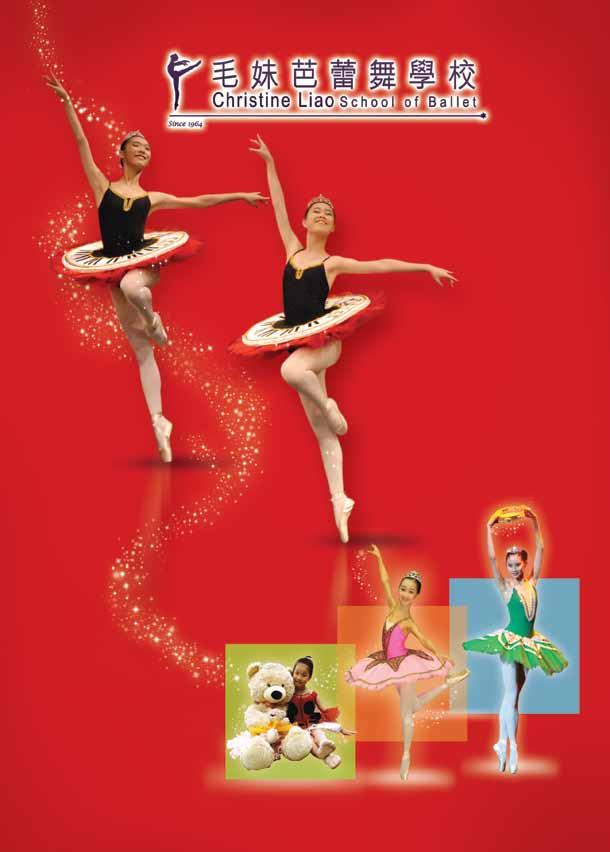
Siis te Jeesuksen ystävät armoitetut, kaikki uskossa vaeltakaatte. Luja toivonne olkoon, te ahdistetut, vaikka kiusoja, vaivoja saatte.
Teillä auttaja on, apu ahdinkohon tätä tietänne kulkiessanne. Hän on armollinen, hän on uskollinen.
Pysykää yhä Jeesuksessanne.
Kun me heikkoina Herralle huokaamme vaan, Pyhä Henkensä auttaa jo meitä. Uni meitä kun pyrkivi ahdistamaan, meitä Herra ei nukkumaan heitä. Kun me uuvumme niin, ettei rukouksiin
eikä valvomiseen ole voimaa, hän on puolustaja, esirukoilija, eikä heikkoja, huonoja soimaa.
Herra Jeesus Kristus.
Therefore, ye blessed friends of Jesus, go your way in faith, may your hope be strong, ye who are oppressed, though ye may be visited with pain and strife. Ye have a helper, an aid in anguish upon this way you wander, he is merciful, he is loyal. Keep to your Jesus.
When we sigh unto the Lord in our weakness, his holy spirit doth aid us, when our very dreams trouble us, the Lord will not let us sleep alone. When we grow weary and have no strength, to pray or to watch and wake, he shall be our defender and pray for us, and not chastise the weak and the wanting.
Lord Jesus Christ.
因此,耶穌基督的朋友, 要憑信心走你的路, 那些被壓迫的人, 願你有堅定的盼望。
縱使你可能遇到痛苦、 面對爭鬥, 但你尚有援助, 苦惱中的拯救, 走向這邊來, 他是仁慈的、忠誠的。 靠着耶穌基督。
當我們在脆弱時 向主哀歎, 聖靈會幫助我們。
當我們被夢纏擾, 主不會讓我們獨自入睡。
當我們軟弱、 無力禱告、守望、儆醒, 祂會保護我們, 為我們祈禱, 不會責怪我們的 懦弱和缺失。
主耶穌基督。
Text from hymn 310 in the hymnbook of Finnish Evangelic-Lutheran church, translation by Jaakko Mäntyjärvi. 歌詞選自芬蘭新教路德教會詩歌第310首。
Narcissus and Echo
Parate viam caeco Tiresiae!
Tiresias per aonias fama celeberrimus urbes imreprehensa dabat populo responsa petenti.
Namque quinos unum Narcissus annum addiderat poteratque puer iuvenisque videri. Multi illum iuvenes, multae cupiere puellae; sed fuit in tenera tam dura superbia forma nulli illum iuvenes nullae tetigere puellae.
Prepare a way for blind Tiresias!
Tiresias, most famous throughout the Boetian cities, gave faultless answers to whoever asked questions.
Narcissus now had reached his sixteenth year, and seemed both man and boy. Many young men and many girls desired him, but there was in his delicate frame such hard pride that no young men, nor girls moved him.
《那西賽斯與厄可》
為瞎眼的泰瑞西斯開路! 泰瑞西斯在比奧亞的各城 都十分有名, 無論誰向他提問, 他都能解答。
那西賽斯已經16歲, 青春中帶點成熟, 又像一位少年。
很多男男女女都傾慕他, 但他完美的體態中, 盛載着無比的自滿, 無論誰都不能打動他。
Aspicit hunc trepidos agitant in retia cervos vocalis nymphe, quae nec reticere loquenti nec prior ipsa loqui didicit, resonabilis Echo.
Tantum haec fine loquendi ingeminat voces. Quotiens voluit blandis accedere dictis molles adhibere preces! Natura repugnant.
Forte puer comitus seductus ab agmine fido dixerat “ecquis adest?”
Hic stupet utque aciem partes dimittit in omnes, voce magna clamat “veni”: vocat illa vocantem.
“Huc coeamus!”
“Antequam copia nostri moriar!”
“Emoriar!”
Corporis omnis abit... Ossa saxa facta Inde latet silvis nulloque... Videtur sed omnibus auditur;
Fons erat inlimis, nitidis argenteus undis, quem neque pastores neque pastae monte capellae contigerant Hic puer et studio venandi lassus et aestu, procubuit faciemque loci fontemque secutus.
Dumque sitim sedare cupit adstupet ipse sibi vultui; spectat sua lumina impubesque genas eburnea colla decusque oris
While driving a skittish deer into his nets, he is seen by a strange-voiced nymph who knows neither how to give answer to questions asked of her, nor to speak first herself: resounding Echo. She only redoubles words after they are spoken by others.
Oh! How many times she longed to approach Narcissus with flattering words and soft pleas! But nature opposed.
Having been separated by his troop of companions, the boy had cried: “Is anyone here?”
And Echo replied “Here!” He is amazed, and looking in all directions, he cries in a loud voice:
“Come!” She answers “Come!”
“Join me here,” he cries.
“Join me here” is the reply.
“Before I’ll yield to you I’ll die,” he cries.
“I’ll die” is the reply. In the woods she hides, seen by none but heard by all.
Near Narcissus there was a clear pond of silver and shining water which neither shepherds nor mountain goats had visited. Here the boy, wearied by the hunt and the heat, lay down to rest.
一天,他領一頭怯懦的 鹿進網時,
一位聲音奇怪的仙女 看到他。
這位仙女不懂得回答 他人的問題,
又不懂主動與人說話,
她的名字叫厄可, 是回音的意思。
厄可只能重覆他人的說話。
她一直希望靠近那西賽斯, 向他說盡甜言蜜語, 可是她不能。
那西賽斯離開了他的同伴, 他喊道:「有人嗎?」 厄可答:「在!」 他十分驚訝,四處張望,
大叫:「來!」
她答:「來!」
他又叫:「走過來!」
她又答:「走過來!」
他說:「我不會屈服的, 就算死。」
她答:「就算死。」
她躲在森林裏, 沒有人看到她,
但她的聲音卻非常清楚。
那西賽斯身旁有一個湖, 湖水清澈,閃閃發光,
牧羊人和山羊都沒有 到過這裏。
那西賽斯在炎熱的天氣打獵 過後,疲倦得躺下來睡了。
When he awoke he went to take a drink from the pool, and he was enthralled to see his own image reflected in the water. He gazes at his own eyes, at his beardless cheeks and ivory neck and at his beautiful face.
At oculos idem qui decipit incitat error
But what arouses the eyes also deceives them.
他醒來後喝了一口湖水, 見到水裏自己的倒影, 給迷住了。
他看到自己的雙眼、 光滑的面龐、 乳白的頸項和 俊俏的面容。
人們總被眼睛看到的 欺騙了。
Et placet et video sed quod videoque placetque non tamen invenio.
Exigua prohibemur aqua. Cupit ipse teneri nam quotiens liquidis porreximus oscula
lymphis, hic totiens ad me resupino nititur ore Iste ego sum! Uror amore mei!
Sic attenuatus amorenec corpus remanet, quondam quod amaverat echo dictoque ‘vale’, ‘vale’ inquit et echo sed nusquam corpus erat... vale vale vale
Ita finitur fabula Narcissu et Echu ut ab Ovidio narrator.
“What I see delights me, but I cannot touch what I see. We are hindered by a little water. He wants me to embrace him. He rushes towards me with upturned face to be kissed!”
Suddenly he realises: “I am he! I am on fire with love for myself!”
And the boy who Echo once loved disappears in the water.
“Farewell,” he sighs, and Echo sighs a last “Farewell.”
Now there are no bodies anywhere.
Farewell, farewell, farewell!
And so ends the story of Narcissus and Echo as told by Ovid.
「我看到我所喜悅的,
但我卻不能觸摸他。
我們被水相隔。
他想我抱他,
把面迎過來想我親他!」
突然,他發現了:
「我就是他!
我愛上了自己!」
厄可喜歡的少年就此消失。
他說:「再見」,
厄可也歎氣說:「再見」。
現在,四周都沒有人。
再見,再見,再見!
奧維德的那西賽斯和厄可的 故事就此終結。
Water Night
Night with the eyes of a horse that trembles in the night, night with eyes of water in the field asleep is in your eyes, a horse that trembles is in your eyes of secret water.
Eyes of shadow-water, eyes of well-water, eyes of dream-water.
Silence and solitude, two little animals moon-led, drink in your eyes, drink in those waters.
If you open your eyes, night opens doors of musk, the secret kingdom of the water opens flowing from the centre of the night.
And if you close your eyes, a river, a silent and beautiful current, fills you from within, flows forward, darkens you: night brings its wetness to beaches in your soul.
Original Spanish text by Octavio Paz, translation by Muriel Rukeyser
《水之夜》
晚上,馬的明眸正在顫抖, 晚上,在你眼內, 水之明眸在田裏熟睡, 一隻馬在密閉的水中、 你的明眸裏顫抖。
蔭林的水之眼, 井水之眼, 夢中的水之眼。
寧靜和孤寂 月亮帶領的小傢伙, 傾聽你的明眸, 傾聽那些水源。
如果你張開眼, 晚上打開麝香之門, 水的秘密王國打開 由深夜飄流開去。
如若你閉起雙眼, 一道河流, 寧靜甜美的水流, 流進你的內心, 前進,讓你變得黑暗: 在黑夜中讓你的靈魂得到潤澤。
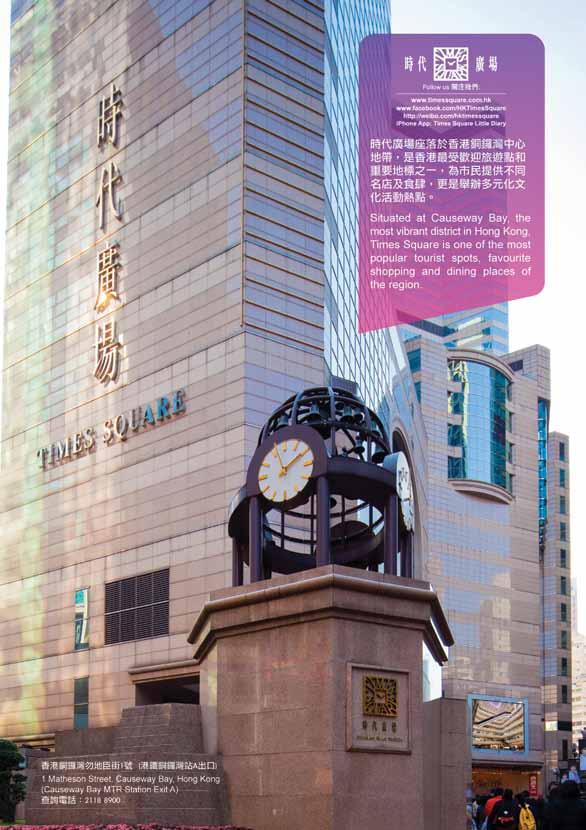
Rakastava
Miss' on, kussa minun hyväni, miss' asuvi armahani, missä istuvi iloni, kulla maalla marjaseni?
Ei kuulu ääntävän ahoilla lyövän leikkiä lehoissa, ei kuulu saloilta soitto, kukunta ei kunnahilta. Oisko armas astumassa marjani matelemassa, oma kulta kulkemassa valkia vaeltamassa, toisin torveni puhuisi, vaaran rinnat vastoaisi, saisi salot sanelemista, joka kumpu kukkumista, lehot leikkiä pitäisi, ahot ainoista iloa.
Täst' on kulta kulkenunna, täst' on mennyt mielitietty, tästä armas astununna, valkia vaeltanunna; täss' on astunut aholla, tuoss' on istunut kivellä. Kivi on paljon kirkkahampi, paasi toistansa parempi, kangas kahta kaunihimpi, lehto viittä leppiämpi, korpi kuutta kukkahampi, koko metsä mieluisampi, tuon on kultani kulusta, armahani astunnasta.
Hyvää iltaa, lintuseni. Hyvää iltaa, kultaseni. Hyvää iltaa nyt, minun oma armahani!
Tanssi, tanssi lintuseni, tanssi, tanssi kultaseni, tanssi, tanssi nyt, minun oma armahani!
Seiso, seiso lintuseni, seiso, seiso kultaseni, seiso, seiso nyt, minun oma armahani!
Anna kättä, lintuseni, anna kättä, kultaseni, Anna kättä nyt, minun oma armahani!
The Lover
Where is my fair one, where dwells my beloved, where rests my delight, in what land is my flower? She sings not in the meadows, nor plays in the grove, no music is heard from the far forests, no birdsong from the hills. If my beloved were walking there, my flower, my own darling, my bright one wandering, the hill sloped would answer the sound of my horn, the far forests would resound and every hillock with birdsong, every grove with her playing, and the meadows would be full of eternal joy.
Here my darling has walked, here my sweetheart has passed, here my beloved’s steps have trod, here my bright one has wandered, here she walked in the meadow and here sat on this stone: the stone shines much brighter and surpasses all other stones; the ward is nowhere more beautiful, this grove is milder than all others, this wilderness blooms more richly, this whole forest is pleasanter, there me beloved has passed, there my darling has walked.
Good evening, bird of mine, good evening, my own darling, good evening now, beloved one.
Dance, dance, bird of mine, dance, dance, my own darling, dance, dance now, beloved one!
Stand still, bird of mine, stand still, my own darling, stand still now, beloved one!
Give me your hand, bird of mine, give me your hand, my own darling, give me your hand now, beloved one!
《愛人》
我的可人兒在哪裏? 我的愛人在哪兒? 我的樂事在哪處? 我的花兒在哪方? 她不在草地間高歌, 不在叢林間玩耍, 森林聽不到音樂, 山丘處沒有鳥兒歌唱。 倘若我所愛的在那裏, 我的花兒, 我的親愛, 我最亮眼的人兒正在漫遊, 山丘會回答 我的號角, 森林會發出回蕩, 山林會有鳥兒歌唱, 叢林會有她在玩耍, 草地會充滿永恆的歡樂。
我的親愛走過這裏, 我的甜心經過這兒, 我所愛的踏過這處, 我最亮眼的人兒 曾漫遊此地, 踏上草原, 坐在石上: 石頭變得閃亮, 比任何石頭都美; 四周變得美麗盅然, 樹林變得無比溫柔, 荒野變得多麼豐盛, 森林變得更加美好, 我所愛的經過這裏, 我親愛的走過這裏。 晚安,我的鳥兒, 晚安,我親愛的, 此刻晚安,我的所愛。
舞吧,舞吧,我的鳥兒, 舞吧,舞吧,我親愛的, 此刻舞吧,舞吧, 我的所愛!
站着,我的鳥兒, 站着,我親愛的, 此刻站着,我的所愛!
請把手交給我,我的鳥兒, 請把手交給我,我親愛的, 此刻把手交給我, 我的所愛!
Käsi kaulaan, lintuseni, käsi kaulaan, kultaseni, halausta kultaseni, halausta nyt minun oma armahani!
Suuta, suuta lintuseni, suuta, suuta kultaseni, halausta lintuseni, halausta nyt minun oma armahani!
Suuta, suuta, minun oma armahani!
Jää hyvästi lintuseni, jää hyvästi kultaseni, jää hyvästi lintuseni jää hyvästi nyt minun oma armahani!
Your hand round my neck, bird of mine, your hand round my neck, my own darling, embrace me, my own darling, embrace me now, beloved one!
Come kiss me, bird of mine, Come kiss me, my own darling, embrace me, my own darling, embrace me now, beloved one!
Come kiss me now, beloved one! Fare thee well, bird of mine, fare thee well, my own darling, fare thee well, bird of mine, fare thee well now, beloved one!
請抱着我的脖子,
我的鳥兒,
請抱着我的脖子,
我親愛的,
請抱着我,我親愛的,
此刻抱着我,我的所愛!
來親我,我的鳥兒,
來親我,我親愛的,
請抱着我,我親愛的, 此刻抱着我,我的所愛!
此刻來親我,我所愛的!
再見,我的鳥兒, 再見,我親愛的, 再見,我的鳥兒,
此刻再見,我的所愛。
Raua needmine
Ohoi sinda, rauda raiska, rauda raiska, rähka kurja, liha sööja, luu pureja, vere süütuma valaja!
Kust said kurja, kange'eksi, üleliia ülbe'eksi?
Hurjuh sinda, rauda raiska! Tean ma sündi su sõgeda, arvan algust su õela!
Curse upon Iron
Ohoy, villain! Wretched iron! Wretched iron! Cursed bog ore! You flesh-eater, Gnawer of bones, you spiller of innocent blood! Wicked, how did you get power?
Tell how you became so haughty!
Damn, you, bastard! Wretched iron!
I know your birth, you purblind fool, I know well your source, you villain!
《鐵之咒》
可恥!卑劣的鐵!
卑劣的鐵!可惡的泥沼礦!
你嗜肉、噬骨,
害無辜者流血!
邪惡!你怎樣得到能力? 你怎樣變得如此高傲?
該死的!野種!卑劣的鐵!
我知道你的出身,
愚鈍的蠢材,
我知道你來自哪裏,可恥!
Käisid kolme ilmaneitsit, taeva tütarta tulista, lüpsid maale rindasida, soo pääle piimasida. Üks see lüpsis musta piima, sest sai rauda pehme'eda; teine valgeta valasi, sellest tehtus on teraksed; kolmas see veripunasta, sellest malmi ilma tulnud.
Ohoi sinda, rauda raiska, rauda raiska, rähka kurja!
Ei sa siis veel suuri olnud, ei veel suuri, ei veel uhke, kui sind soossa solguteldi, vedelassa väntsuteldi.
Hurjuh sinda, rauda raiska!
Tean ma sündi su sõgeda, arvan algust su õela!
Once there walked three nature spirits, three fiery daughters of the sky. They milked their swelling breasts to earth, they squeezed their milk onto the fens. From the first maid spurted black iron, this turned into soft wrought iron. White milk squirted the second maid, this was the source of tempered steel. The third maid spouted blood-red milk, this gave birth to bog iron ore.
Ohoy, villain! Wretched iron! Wretched iron! Cursed bog ore!
Then you were not high and mighty, not yet mighty, not yet haughty, when you sloshed in swamps and marshes, when in bogholes you were trampled.
Damn you, bastard! Wretched iron!
I know your birth, you purblind fool!
I know well your source, you evil!
Susi jooksis sooda mööda, karu kõmberdas rabassa, soo tõusis soe jalusta, raba karu käpa alta. Kasvid raudased orased, soe jalgade jälile, karu käppade kohale. Ohoi rauda, laukalapsi, rabarooste, pehme piima! Kes su küll vihalle käskis, kes pani pahalle tööle?
Surma sõitis sooda mööda, taudi talveteeda mööda, leidis soost terakse taime, raua rooste lauka'alta.
Nii kõneles suuri surma, taudi tappaja tähendas: mäe alla männikussa, põllulla küla päralla, talu aitade tagana: siin saab surma sepipada, siia ahju ma asetan, siia tõstan lõõtsad laiad, hakkan rauda keetamaie, raua roostet lõõtsumaie, rauda tampima tigedaks.
Rauda, vaene mees, värises, jo värises, jo võbises, kuulis kui tule nimeda, tule kurja kutsumista.
從前有三位大自然精靈,
是上天火熱的女兒。
她們擠奶給大地,
她們擠奶給沼澤。
第一位女子噴出黑鐵, 使它變成熟鐵。
第二位女子噴出白奶, 把鋼鍊好了。
第三位女子噴出血紅的奶, 叫泥沼有鐵礦。
可恥!卑劣的鐵! 卑劣的鐵!可惡的泥沼礦!
你那時並不高尚,也不偉大, 不強壯、也不高傲,
那時你在沼澤及濕地遊蕩,
那時你在泥沼洞給蹂躪。
該死的!野種!卑劣的鐵!
我知道你的出身,
愚鈍的蠢材﹗ 我知道你來自哪裏,可恥!
A wolf then ran across the fen, a shambling bear walked in the moor. And the swamp rose from the wolf tracks, and the moor from under the bear's paws.
And there sprouted iron seedlings in the traces of the wolf's claws, in the hollows of the bear tracks.
Ohoy, iron! Child of boghole! Swamp's red rust and gentle smooth milk!
Tell me, who made you so baleful! Who decreed your works of mischief?
Death was riding through the marshes, plague was on a winter journey. Seedling steel it found in swampland, rusty iron in a boghole.
The great death then began to talk, the killer plague then spoke and said:
In a pine grove on a hillside, in a field behind the village, far beyond the farmers' granges, right here will be the forge of death. Here I'll build the forge's furnace, here I'll place the widest bellows, here I'll start to boil the iron, fan and blast the rust-red bog ore, hammer anger into iron.
Iron, poor man, shivered, trembled, shivered, trembled, shuddered, quavered, when he heard fire being called by name, heard the plea for wicked fire.
Ohoi sinda, rauda raiska! Ei sa siis veel suuri olnud, ei veel suuri, ei veel uhke, kui sa ääsilla ägasid, vingusid vasara alla. Taat see ahjulta ärises, halliparda vommi päälta:
Rauda rasvana venikse, ila kombel valgunekse, veerdes alla ääsi'ilta, voolates valutulesta.
Ohoy, villain! Wretched iron!
Then you were not high and mighty, not yet mighty, not yet haughty, when you moaned in the white-hot furnace, whined under beating hammers. Scolded the old man from upon the oven, the greybeard from the furnace roof:
Iron stretches, like blubber, spreads like saliva, oozing from the blazing furnace, flowing from the scorching fire.
狼在沼澤跑過, 熊在泥沼搖晃。
沼澤從狼的足跡浮現,
泥沼從熊爪下滲出來。
鐵苗在狼爪的 痕跡上萌芽了,
在熊仁的足印間長了出來。
鐵!泥沼洞之子!
沼澤的紅鏽, 嫩滑的奶! 告訴我,誰叫你這麼邪惡? 誰裁定你的惡行?
死亡在沼澤走過, 瘟疫在冬天旅行。
沼澤地找到鋼苗,
泥沼裏找到鐵鏽。
浩大的死亡開始說話, 殺手瘟疫隨後說: 在山邊的松林裏, 在村後的田野中, 農場的遠處, 就是煉冶死亡之地方。
這裏我會建煉冶爐,
這裏我會放最大的風箱, 這裏我會燒鐵, 吹煉那鏽紅的泥礦, 把憤怒嵌進鐵之中。
鐵,可憐的人, 在發抖、打顫、 發抖、打顫、戰慄、震顫, 他聽到有人求火降臨, 他聽到有人懇求 可惡的火降臨。
可恥!卑劣的鐵! 你那時並不高尚、 也不偉大, 不強壯、也不高傲, 那時你在白熱的爐中呻吟, 被鎯頭猛烈擊打。
咒罵爐上的老人、 爐頂的老翁:
鐵伸延,如悲泣, 四散如唾液,
從燃燒的爐中滲出, 從灼熱的火裏流走。






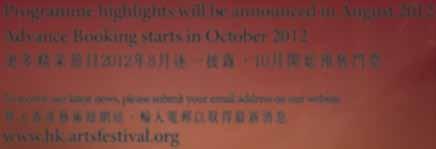






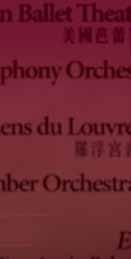


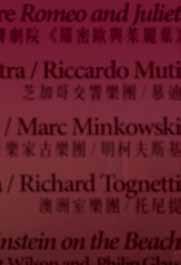
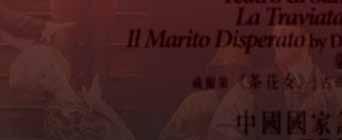






Veel sa rauda pehmekene, miska sind karastatakse, terakseksi tehtaneks? Toodi ussilta ilada, musta maolta mürgikesta. Ei see raud kuri olekski ilma usside ilata, mao musta mürkideta.
Taat see ahjulta ärises, halliparda vommi päälta: Varja nüüd vägeva Looja, kaitse kaunike Jumala, et ei kaoks see mees koguni, hoopistükkis ema lapsi, Looja loodusta elusta, Jumala alustatusta.
Uued ajad. Uued jumalad. Kahurid, lennukid, tankid, kuulipildujad. Uus raud ja teras, uhiuued, targad, täpsed, vägevad tapjad, automaatsete sihtimisseadmetega tuumalaengut kandvad, tõrjerelvadele kättesaamatud raketid.
Iron, you're still soft and gentle. How have you yet to be tempered to make steel from you?
Saliva was brought from a viper, venom from a black snake!
For iron wouldn't harbor evil without saliva from vipers, without venom from black snakes.
Scolded the old man from upon the oven, the greybeard from the furnace roof: Shelter us now, supreme Creator! Keep us safe, God Almighty!
So that mankind would not perish, mother's child vanish without trace from life created by Creator, commenced by God.
New eras. New gods. And cannons and airplanes and tanks, and machine guns. New iron and steel.
Brand-new, intelligent, precise powerful killers, equipped with automated guiding devices, armed with nuclear warheads. Missiles invulnerable to defensive rocketry.
Noad, odad, kirved, taprid, saablid, lingud, tomahawkid, bumerangid, ammud, nooled, kivid, kaikad, küüned, hambad, liiv ja sool, tuhk ja tõrv, napalm ja süsi.
Uus ja kõige kaasaegsem tehnika, elektroonika viimane sõna, valmis liikuma igasse punkti, kõrvalekaldumatult sihti tabama, peatama, rivist välja lööma, hävitama, võitlusvõimetuks tegema, haavama, teadmata kaotama, tapma, tapma raua, terase, kroomi, titaani, uraani, plutooniumi, ja paljude teiste elementidega.
Knives and spears, axes, halberds, sabres, and slings and tomahawks and boomerangs, bows and arrows, rocks and warclubs, and claws and teeth, sand and salt, dust and tar, napalm and coal.
Brand-new and up-to-date technology, the ultimate word in electronics, ready to fly in any direction, stay undeflected on its course, hit the target, paralyze, and knock out of action, obliterate, disable, wound, list missing, and kill, kill with iron and with steel, with chromium, titanium, uranium, plutonium, and with multitude of other elements.
鐵,你仍然溫柔軟順。
怎麼你還未鍊成鋼?
毒蛇的唾液、
黑蛇的毒汁已經拿來!
沒有毒蛇的唾液、 沒有黑蛇的毒汁, 鐵不會窩藏罪惡。
咒罵爐上的老人、 爐頂的老翁:
保護我,至高的創造者! 讓我安全,全能的上帝!
讓人類不至消失, 兒童不至失去蹤影, 人是創造主的受造物, 由上帝賜予生命。
新的時代、新的神。
炮彈、飛機、 坦克、機關槍。
新鐵、新鋼。
煥然一新、
充滿智慧, 準確無誤、
殺傷力大,
備有自動導航設備,
配有核子彈頭。
不怕防衛飛彈的導彈。
刀、矛、斧、
戟、馬刀、
投石器、戰斧、回力棒、
弓和箭、石和戰棍、 鉗和鋸齒、
沙和鹽、塵和油、 汽油彈和煤。
嶄新的現代科技, 電子系統的追求,
隨時飛往任何方向,
毫不偏差, 擊中目標, 癱瘓、打倒、 消滅、瓦解、 受傷、消失、 殺戮,用鐵用鋼, 用銘、用鈦、 用鈾、用鈽、 用許多許多的元素。
Ohoi sinda, rauda kurja, mõõka sõja sünnitaja, rauda rähka, kulda kilpi, sina teras, nurja tõugu! Hurjuh sinda, rauda raiska! Oleme ühesta soosta, ühest seemnest me siginud, sina maasta, mina maasta, musta mulda me mõlemad, ühe maa pääl me elame, ühe maa sees kokku saame, maad meil küllalt siis mõlemal.
Ohoy, villain! Evil iron!
Blade of the sword, mother of war!
Boghole ore's golden shield, you, steel, of vile breed!
Damn you, bastard! Wretched iron!
We are kinsmen, of the same breed, of the same seed we have sprouted, you are earth-born, I am earth-born, we are both black soil.
For we both live on the same earth and in that earth we two will merge. Then there will be land enough for both.
可恥!邪惡的鐵! 刀鋒是戰事之母! 泥沼礦內的金盾, 鋼,你是卑劣的!
該死的!野種!卑劣的鐵! 我們血脈相連,
我們是同類, 我們長自相同的苗, 你我皆是土地所生的, 我們都是黑色的土壤。
我們都住在同一世界,
我們會在這裏合一,
這樣我們才能共存。
Text from ’Kalevala’, compiled by August Annist and later complemented by Paul-Eerik Rummo and Jaan Kaplinski, translation by Eero Vihman.

3.4.2012 - Concert 2
芬蘭音樂及民謠
克斯堤艾倫(改編)
《我有一位戀人》
《我眼裏沾滿淚》
胡爾科寧(1927-2008)
《到處盡是山丘》
緒克(改編)
《你的海岸廣闊寂寞》
林古拉(改編)
《紅絲帶》
加爾其(庫希斯托改編)
《最後探戈》
萊赫蒂寧(庫希斯托改編)
《有時候》
赫尼爾(改編)
《鈴鈴鈴》
兒歌
吉爾吉遜(祖利斯改編)
《最單純的必需品》
傳統童謠
《左搖右擺》(勒可改編)
《約翰哥哥》(帕努拉改編)
流行經典
林姆斯基高沙可夫(史溫格改編)
《野蜂飛舞》*
艾倫(唐拿改編)
《彩虹之上》
連儂、麥卡尼(奇可改編) 《昨天》
修文(普爾靈改編)
《夜鶯在伯克利廣場歌唱》
安德森、烏爾法厄斯(伊渣斯改編)
《國歌》,選自《棋》
獨唱:伊渣.普高(男中音)
范恩
《愛是多姿多采的》
獨唱:伊渣.普高(男中音)
FINNISH MUSIC AND FOLK SONGS
Pekka Kostiainen (arr.)
Mull’ on heila ihana (I Have a Sweetheart)
Veret tuli mun silimihini (I Got Tears in These Eyes of Mine)
Jaakko Hulkkonen (1927-2008 )
Hilu, hilu (Hilly Hilly)
Matti Hyökki (arr.)
On suuri sun rantas’ autius (Your Shore is Wide and Desolate)
Jukka Linkola (arr.)
Punapaula (Red Ribbon)
Toivo Kärki (arr. Ilkka Kuusisto)
Illan viimeinen tango (The Last Tango)
Rauno Lehtinen (arr. Ilkka Kuusisto)
On hetki (There is a Time)
Mikko Heiniö (arr.)
Tirlil
MUSIC FOR CHILDREN
Terry Gilkyson (arr. Dani Juris)
The Bare Necessities
Traditional Children Songs
Huugiguugi (Hoogiegoogie) (arr Tapani Raiko)
Jaakko kulta (Brother John) (arr Jorma Panula)
POPULAR SONGS
Nikolai Rimsky-Korsakov (arr. Ward Swingle)
Flight of the Bumble Bee *
Harold Arlén (arr. Guy Turner)
Over the Rainbow
John Lennon and Paul McCartney (arr. Bob Chilcott)
Yesterday
Manning Sherwin (arr. Gene Puerling)
A Nightingale Sang in Berkeley Square
Benny Andersson & Björn Ulvaeus (arr. Anders Eljas)
Anthem from “Chess”
Soloist: Elja Puukko, baritone
Sammy Fain
Love is a Many-Splendored Thing
Soloist: Elja Puukko, baritone
* 歌曲沒有歌詞。This song does not have lyrics.
演出曲目或次序或有更改 Songs and their order of performance are subject to change
六首芬蘭民謠 Six Finnish Folk Songs
芬蘭民謠的主題通常離不開愛情:尋找愛、找到愛或失去愛。有的因愛人沾沾自喜、 有的裝作滿不在乎、有的情場失意。無論故事如何,總可放聲高歌。
民謠在芬蘭佔有十分重要的地位,常見於當代合唱作品中。
The theme in a Finnish folk song is typically love related: one might be looking for love, already found love or even lost a love. Some brag with their sweethearts, some pretend not to fancy their suitors and some are just unlucky in love. Whatever the story, you can always sing about it.
The significance of folk songs in Finland can be seen in their popular use in contemporary choral music.
克斯堤艾倫(改編) Pekka Kostiainen (arranger)
《我有一位戀人》Mull' on heila ihana (I Have a Sweetheart )
《我眼裏沾滿淚》Veret tuli mun silimihini (I Got Tears in These Eyes of Mine)
克斯堤艾倫是芬蘭作曲家兼合唱團指揮。他是一位出色的合唱團指揮,非常清楚合唱 團的特點,因此在合唱作品的創作上特別成功。克斯堤艾倫喜歡芬蘭民謠,經常用於 其作品中。
《我有一位戀人》(1984) 是克斯堤艾倫改編的作品,集合了多部芬蘭民謠。
《我眼裏沾滿淚》是一部傳統民謠,來自芬蘭一個充滿歷史色彩的地方 博藤。
Kostiainen, a Finnish composer and choral conductor, is best known as a composer of choral music, for he has made a successful career as a choral conductor and knows just what a choir can do. Kostiainen is very fond of Finnish folk songs and often uses them for his compositions.
Mull’ on heila ihana (I Have a Sweetheart, 1984) is a potpourri of Finnish folk songs.
Veret tuli mun silimihini is a traditional folk song from the historical province of Finland, Ostrobothnia.
胡爾科寧(改編) Jaakko Hulkkonen (arranger)
《到處盡是山丘》Hilu, hilu (Hilly Hilly)
胡爾科寧 (1927 2008) 是芬蘭作曲家兼教會樂手,以創作合唱作品聞名,亦改編了 很多芬蘭民謠。
《到處盡是山丘》選自1974 年的《五首芬蘭民謠》,是一部為混聲合唱團寫的詼諧 曲。作品十分流行,是作曲家被錄製得最多的音樂。
Hulkkonen (1927 2008) was a Finnish composer and church musician. He is mainly known for his choral works and the arrangement of Finnish folk songs constitute a significant part of his music.
Hilu, hilu is from a collection Viisi suomalaista kansanlaulua (Five Finnish Folk Songs, 1974). It is a popular humoresque for a mixed choir, and the most recorded piece of Hulkkonen’s music.
緒克(改編)Matti Hyökki (arranger)
《你的海岸廣闊寂寞》On suuri sun rantas’ autius (Your Shore is Wide and Desolate)
緒克 (1944-) 是芬蘭合唱團指揮兼作曲家,由1980年起到2010年一直擔任芬蘭赫爾
辛基男聲合唱團指揮,於芬蘭合唱界是數一數二的人物。
旋律憂鬱的民謠《你的海岸廣闊寂寞》(1984),以《芬蘭頌》作者柯斯坎尼米的詩為 詞。這部合唱作品在芬蘭以外的地方亦很受歡迎。
Hyökki (1944 ) is a Finnish choral conductor and composer. He is an unparalleled figure in Finnish choral music who led the Finnish YL Male Voice Choir as conductor from 1980 to 2010.
On suuri sun rantas’ autius (Your Shore is Wide and Desolate, 1989) combines the poem of VA Koskenniemi, best known for his poem Finlandia, and a melancholic folk song tune. This popular choir piece has also become a favourite outside Finland.
Huugiguugi is a Finnish children's song made famous by a popular Finnish children's rock band Fröbelin Palikat. The song is about combining singing and different movements — basically it is good for children's coordination ability. The lyrics give the children instructions on how to move.
傳統歌曲(帕努拉改編)Traditional (arranger: Jorma Panula)
《約翰哥哥》(港譯:打開蚊帳)Jaakko kulta (Brother John)
《約翰哥哥》翻譯自著名的法國兒歌《雅各哥哥》。在英語裏「雅各」通常叫約翰或 傑克。香港亦有一個廣東話版本。
Jaakko kulta is a Finnish translation of the famous traditional French children's song Frère Jacques. In the English speaking world Frère Jacques is usually called either Brother John or Jack. There is also a Cantonese version in Hong Kong.
流行經典 Popular Songs
林姆斯基高沙可夫(史溫格改編)Nikolai Rimsky-Korsakov (arranger: Ward Swingle)
《野蜂飛舞》Flight of the Bumble Bee
《野蜂飛舞》是林姆斯基高沙可夫於1899 1900年為歌劇 《蘇丹王的故事》所寫的 間奏曲,是一部管弦樂作品。音樂的旋律在流行音樂中亦很受歡迎,常被用作主題音
樂,不少藝術家都本着快人一步的意圖,錄製更快速的版本。
Flight of the Bumblebee is an orchestral interlude written by Russian Nikolai RimskyKorsakov for his opera The Tale of Tsar Saltan, composed in 1899 1900. The melody has also become popular in pop culture: Flight of the Bumblebee has been used widely as a theme song and many artists have recorded their own versions of the song often with the intention to record the piece at a greater tempo than the other artists.
艾倫(唐拿改編)Harold Arlén (arranger: Guy Turner)
《彩虹之上》Over the Rainbow
《彩虹之上》這部民謠是經典的奧斯卡得獎作品,是電影《綠野仙蹤》的音樂,由朱 迪.嘉蘭主唱。作品於二次世界大戰時給駐歐洲的美軍選用為代表美國的歌曲。《彩
虹之上》極具感染力,多米拿堤合唱團常在音樂會加演時段演唱此曲。
Over the Rainbow is a classic Academy Award-winning ballad that was originally written for the movie The Wizard of Oz, and sung by Judy Garland. The song was also adopted by American troops in Europe in World War II as a symbol of the United States. Due to its indissoluble appeal, Dominante has often performed the song as an encore in their concerts.
連儂、麥卡尼(奇可改編)John Lennon & Paul McCartney (arranger: Bob Chilcott) 《昨天》Yesterday
《昨天》是披頭四1965年推出的大碟《救命!》中的作品,由保羅.麥卡尼主唱。這 首作品大受歡迎,有超過1600個不同版本,在音樂史上可謂數一數二。1999年英國廣 播公司第二台的投票活動當中,《昨天》由樂壇專業人士和觀眾一致選定為二十世紀 最佳歌曲。
Yesterday is a song originally recorded by The Beatles for their album Help!, published in 1965. Originally performed by Paul McCartney, it is one of the most covered songs in the history of recorded music with more than 1600 cover versions. Yesterday has been voted the best song of the 20th century in BBC Radio 2 poll of music experts and listeners in 1999.
修文(普爾靈編曲)Manning Sherwin (arranger: Gene Puerling)
《夜鶯在伯克利廣場歌唱》A Nightingale Sang in Berkeley Square
《夜鶯在伯克利廣場歌唱》是1939年推出的一部浪漫英國流行曲,修文在二次世界大 戰爆發前夕於法國小漁村勒拉芬杜完成創作。這部作品在1939年夏天於當地一所酒吧 首演,當時並沒有讓人留下深刻印象。現在,《夜鶯在伯克利廣場歌唱》是一部經典 作品,很多歌手如納京高、法蘭.仙納杜拉和曼克頓轉運站都曾唱過。
A Nightingale sang in Berkeley Square is a romantic British popular song written in 1939. The song was written in the then small French fishing village of Le Lavandou shortly before the outbreak of the World War II. It had its first performance in the summer of 1939 in a local bar, but nobody seemed too impressed at the time. The song has since become a classic recorded by numerous artists, including Nat King Cole, Frank Sinatra and The Manhattan Transfer.

Ryytimaassa kukkia kasvaa ja kammarissa kolme.
Ei ole vielä sidottu se avioliiton solmu! Ei!
Ryytimaassa kukkia kasvaa ja kammarissa neljä.
Uudelle kullalle kättä annan ja vanhalle käännän seljän! Hei!
Tuoltapa näkyy se punan talo tuolta mäen kainalosta.
Hei, hyvä ois pojan vävynä olla tuossakin kartanossa!
Muistanpa ajan kun lemmittiin siellä ja se tuntui mukavalta. Ei, kauan ei tarvis sun odottaa siellä mun akkunani alla!
Pienimmän pientä en jyvästä pyydä sinun isäs kartanosta! Hei! Sinut vain minä mukahan tahdon toisenki kainalosta.
Yhyren kerran minä vielä taharon koittaa sitä vanahan kullan rakkautta. Et sää ole minun enkä minä sinun en mää ole sitä sanonukkaan.
Flowers rise in the garden small and three would bloom in the chamber the marriage knot is not yet tied.
Flowers rise in the garden small and four would bloom in the chamber I'll give my hand to the new love, and turn my back on the old one.
There you can see that red big house, there at the end of hill. Hey! For a boy it would be a good thing to be living in that farmhouse.
I still remember those days when we were lovers, and we loved, oh so well. No, you need not be waiting long under my bedroom window.
I'll not ask for a single grain not in your father's farmhouse. But you are the one I will take with me though you might not be free.
One more time I'd still like to try and see whether our old love can grow between us.
And if then we find no love and tenderness, I shall not cry but I'll find a new one.
園中的花兒嬌小玲瓏, 三朵會在房間內綻放, 一生的盟約 還沒有訂立。
園中的花兒嬌小玲瓏, 四朵會在房間內綻放, 我把手交給新愛, 背向舊愛。
這裏你可看到紅色大屋, 正聳立在山丘的盡處。
對少年來說,能住在 那個農舍,美好之至。
我還記得過往的日子, 我們相愛,多麼完美。
不,你不用在我睡房 窗下等候,牽腸掛肚。
連一顆穀粒我都不會 向你爸爸的農舍來取。
而我要取的,正是你 即使你可能根本沒空。
我仍然希望再試一次, 看我們愛火能否重燃。
如果已沒有愛沒有情, 我不會哭, 但會另覓新歡。
Jos ei siitä enää lempeyttä löyry, sitten minä taharon uuren ottaa! Taaskin on menny tämän kylän ämmäin postinkellon soitto hukkaan.
Veret tuli mun silimihini
Veret tuli mun silimihini, kun näin sun ensi kerran, kun olit niin koria ja hoikan soria ja kävelit kun herra.
Niin kuin ne pienet linnut laulaa, äänellä heliällä ja niin on munkin ajatukseni maailmalla leviällä.
Raitti se raitti se Amerikan raitti on kullalla sannootettu, ja niinhän minäkin raukka olen siitä heilastani erootettu.
No, you are not mine, and I'm not yours, I have never sworn that this is so. Once again all the tattles of this poor village were just in vain.
I Got Tears in These Eyes of Mine
I got tears in these eyes of mine as soon as I saw you. You looked so fine and you were so slim and lordly was your step, too.
Song of the little birds fill the skies with sounds of tinkling bells. And far do I take thoughts of you as I wander around this world.
Road, yes the road, the American road it is broad and white and sanded. And here am I, just a poor sad girl waiting all alone and abandoned.
你不屬我, 我不屬你, 我從來沒有這個盟誓, 在這條貧窮的村子裏, 一切閒話,都是枉然。
《我眼裏沾滿淚》 我眼裏沾滿淚, 當我一看見你。
你英俊、瀟灑, 步履無比優雅。
小鳥到處唱歌, 如叮噹的鈴聲。
我在世上閒晃, 滿腦子都是你。
路,美國的路, 闊白、舖滿沙。
可憐我心傷透, 被離棄並孤獨守候。
Veret tuli mun silimihini, kun näin sun ensi kerran, kun olit niin koria ja hoikan soria ja kävelit kun herra.
Text trad.
Hilu, hilu
Hiluhilu, kun tuli vilu tuolla kynttilän valkialla, vaikka heila istui polvella keinustuolissa kammarin lattialla.
Silkistä sametista nirunarukengät oli entisellä heilallani.
Enkä mä häntä riiannut kuin ilman pilkallani.
Puoliksi palanut se kynttilä oli, mutta toinen puoli paloi vielä.
Puoliksi sammunut rakkaus mull’ oli, hällä se roihusi vielä.
Lumisade sekoitti ne varsan jäljet järvellä ajellessa. Kynttilä palo, palo jalkaan asti heiliä ootellessa.
Tuli harmaja käki minun mökkini päälle kukkuun. Silloin ne pojat kylälle lähtee kun muori ja vaari nukkuu.
Text trad., translation by Jaakko Mäntyjärvi
On suuri sun rantas’ autius
On suuri sun rantas’ autius, sitä sentään ikävöin. Miten villisorsan valitus soi kaislikossa öin.
Joku yksinäinen eksynyt, joka vilua vaikeroi, jok’ on kaislikossa kierrellyt eik’ emoa löytää voi. Sun harmajata aaltoas olen katsonut kyynelein, ens’ surunsa itkenyt rannallas mun on oma nuoruutein.
I got tears in these eyes of mine as soon as I saw. You looked so fine and you were so slim and lordly was your step, too.
Hilly Hilly Hilly hilly, I grew chilly by candlelight though my darling sat on my knee in the rocking chair on the floor.
Of silk and velvet were the shoes that my former darling had, and I only ever courted her for a joke.
Half burnt was the candle, but the other half was still burning. My love was half snuffed, but hers was still aflame.
The snow covered the colt’s tracks as we drove over the lake. The candle burned right down as I waited for my darling.
A grey cuckoo came to sing on my cottage. The boys go out to the village when grandmother and grandfather sleep.
Your Shore is Wide and Desolate
Your shore is wide and desolate, I ever long to be there: to hear the call of the wild duck through the rushes in the deep of night.
It is some lost and lonely soul, weeping for the cold, wandering among the rushes, not finding its mother. I have watched your gray waters with many a tear: my young life did weep its first sorrow on your shore.
我眼裏沾滿淚,
當我一看見你。
你英俊、瀟灑, 步履無比優雅。
《到處盡是山丘》
到處盡是山丘,
雖然戀人在我膝上,
於安樂椅上搖曳, 燭光旁我仍感冰冷。
鞋子是絲絨製的, 屬於我的舊情人。
我對她展開追求, 純粹開個玩笑。
蠟燭已燒了一半, 但另一半仍在燒。
我的愛已經半熄, 但她的仍在燃燒。
我們駛往湖泊時,
雪蓋過馬的蹤跡。
我等待愛人之時, 蠟燭全都燒盡了。
灰色的布穀鳥飛 到我的小屋歌唱。
祖父祖母睡覺時, 少年正離開村莊。
《你的海岸廣闊寂寞》
你的海岸廣闊寂寞, 我一直想往那兒去: 在深夜裏於蘆葦間, 去聽聽野鴨的叫聲。
迷失又孤單的靈魂 寒冷得流下眼淚來, 在蘆葦間四處遊蕩,
不知道母親在何方。
我看到你灰色的水, 弄得雙眼滿是淚光。 年少時我首次懊悔, 我來到你海岸悲泣。
On syvään sun kuvasi painunut ja sitä ikävöin, olen villisorsaa kuunnellut mä siellä monin öin.
Text V.A. Koskenniemi
Punapaula
On neidolla punapaula, kun tanssihin käy. Käs’vartehen kultansa solmii hän sen.
”Miks niin lujalle sä solmit, oi armahani?
Vai luuletko että mä karkajan pois?”
Illan viimeinen tango
Loistavat yössä tähdet, soitto hiljaa kaikaa, tango on illan viimeinen.
Seurassain pois kai lähdet?
Vielä hetken aikaa viettäisin kanssas, tiedät sen.
Pitkä on viikko ja harmaa, kunnes jälleen sinut nään. Luonasi kaikki on varmaa, jää en luonas ikävään.
Text by Reino Helismaa, translation by Antti Kataja
On hetki
On hetki jolloin tuuli uinahtaa, on hetki jolloin tuuli valvoo.
On hetki ystävien, on hetki rakkauden, on hetki yksinäisen pienen ihmisen.
Kun ilta sulkee varjon ylle maan, kun lamput asfaltilla kiiltää, niin odottaa kai sydän saa. Kun kaikki unelmaa on vaan.
Your image is deeply engraved within me, And I ever long to be by your side: I have listened to the call of the wild duck in many a dark night.
Red Ribbon
The maiden with a red ribbon goes dancing.
She ties it to the arm of her sweetheart.
“Why did you tie it so tightly, my beloved?
Do you think I will run away?”
The Last Tango
Stars shining in the dark. The music softly playing. It is the last tango of the night.
Shall you come away with me?
A little more time I would like with you, I’m sure you know.
It is a dreary and long week, before I set my eyes on you again. With you everything is clear, with you I will not be left longing
There is a Time
There is a time for the wind to fall asleep, there is a time for the wind to watch over us.
A moment of friends, a moment of love, a moment for the little soul alone.
As the night shrouds the land in shadow, as the road gleams with the streetlight. The heart must wait its turn as everything is all but a dream.
你的影子留下烙印, 我一直想在你身邊:
無數個黑暗的晚上, 我聽到野鴨的叫聲。
《紅絲帶》
戴着紅絲帶的少女去跳舞。
她把絲帶繫在情人的手上。
「你怎麼把我綁得這麼緊? 親愛的,
你以為我會走嗎?」
《最後探戈》
黑暗中繁星閃耀,
音樂柔柔的響起 是晚最後的探戈。
你會否跟我離開? 再等多一會兒吧。
你知我想與你飛。
沉悶漫長的一周後, 我才能再與你相見。
你令一切顯得明亮, 你令我不用空盼望。
《有時候》
風有躺下休息的時候, 風有守護我們的時候。
跟朋友在一起的時候,
跟情人在一起的時候,
跟孤獨在一起的時候。
晚上覆蓋大地的時候,
道路閃着街燈的時候。 心必須靜靜等待, 萬物皆是一場夢。
流行經典
Over the Rainbow
When all the world is a hopeless jumble, and the raindrops tumble all around. Heaven opens a magic lane.
When all the clouds darken up the skyway there’s a rainbow highway to be found. Leading from your windowpane. To a place behind the sun, just a step beyond the rain.
Somewhere over the rainbow, way up high
There’s a land that I heard of once in a lullaby.
Somewhere over the rainbow skies are blue. And the dreams that you dare to dream really do come true.
Someday I'll wish upon a star and wake up where the clouds are far behind me. Where troubles melt like lemon drops away above the chimney tops, that's where you'll find me.
Somewhere over the rainbow bluebirds fly, birds fly over the rainbow, why then oh why can’t I? If happy little bluebirds fly beyond the rainbow. Why, oh why, can't I?
Yesterday
Yesterday, all my troubles seemed so far away. Now it looks as though they’re here to stay, oh, I believe, in yesterday.
Suddenly, I’m not half the man I used to be, there’s a shadow hanging over me, oh, yesterday came suddenly
Why she had to go I don’t know she wouldn’t say. I said something wrong, now I long for yesterday.
Yesterday, love was such an easy game to play, now I need a place to hide away, oh, I believe in yesterday.
POPULAR SONGS
《彩虹之上》
當世界變得絕望混亂, 雨點四面八方的灑下, 天堂開啟了魔幻之路。
當雲讓天空變得暗淡, 你總能找到一道彩虹, 彩虹能夠從你的窗子 帶你前往太陽的背後, 領着你,跨越那雨點。
彩虹之上, 高高之處, 有一個地方, 我曾在搖籃曲中聽過。
彩虹之上, 都是藍天。
你渴望的夢, 全都能夠在那裏實現。
有天我會向星星許願, 在遠離雲的地方醒來。
煩惱像檸檬汁般溶化, 在煙囪頂你會找到我。
彩虹之上, 青鳥在飛, 鳥飛過彩虹, 那麼,為何我不可以? 如果快樂的小青鳥兒 能越過彩虹翱翔萬里, 那麼,為何我不可以?
《昨天》
昨天, 我的煩惱彷彿已遠離。
現在它們卻揮之不去, 噢,我深信的是昨天。
突然,
我不再是從前的我了, 一片陰影籠罩着自己, 噢,昨天來得太突然。
為什麼她必定要離開? 我不知道她不發一言。 我說了些不該說的話, 現在我渴望昨天再臨。
昨天,
愛情是一場簡單遊戲。 現在,我需要躲起來。 噢,我深信的是昨天。
A Nightingale Sang in Berkeley Square
That certain night, the night we met there was magic abroad in the air, there were angels dining at the Ritz and a nightingale sang in Berkeley Square.
I may be right, I may be wrong. But I’m perfectly willing to swear, that when you turned and smiled at me, a nightingale sang in Berkeley Square.
The moon that lingered over London town, poor puzzled moon he wore a frown, oh how could he know we two were so in love! Whole darn world seemed upside down, the streets of town were paved with stars. It was such a romantic affair, and as we kissed and said goodbye, a nightingale sang in Berkeley Square.
Anthem (from “Chess” )
No man, no madness, though their sad power may prevail, can possess, conquer, my country's heart, they rise to fail.
She is eternal long before nation’s lines were drawn. When no flags flew, when no armies stood, my land was born.
And you ask me why I love her through wars, death and despair. She is the constant, we who don't care. And you wonder, will I leave her - but how? I cross over borders but I'm still there now
How can I leave her?
Where would I start?
Let man's petty nations tear themselves apart. My land's only borders lie around my heart.
Love is a Many-Splendored Thing
Love is a many-splendored thing, it's the April rose that only grows in the early spring, love is nature's way of giving a reason to be living, the golden crown that makes a man a king.
Once on a high and windy hill, in the morning mist two lovers kissed and the world stood still, then your fingers touched my silent heart and taught it how to sing, yes, true love's a many-splendored thing.
《夜鶯在伯克利廣場歌唱》
那晚,我們遇見那一晚, 空氣中瀰漫着一股魔力, 天使們在麗思餐廳用膳, 夜鶯在伯克利廣場歌唱。
我可能對,也可能搞錯。 但我真的絕對樂意發誓, 當你轉身向我微笑時, 夜鶯在伯克利廣場歌唱。
掛在倫敦巿天空的月亮, 迷茫的月亮皺起眉頭來, 它怎麼知道我們在相愛! 討厭的世界似乎顛倒了, 巿裏的街道舖滿了星星。
這是多麼浪漫的一回事, 當我們接吻道別的時候, 夜鶯在伯克利廣場歌唱。
《國歌》(選自《棋》)
沒有人、沒有瘋狂之士 能支配或攻佔我的祖國, 即使他們的氣焰有多大, 他們崛起,也必然失敗。
早在國家劃出疆界之先, 她已不朽的聳立在那裏。
國旗飄揚、敵軍來臨前, 我那片土地已孕育出來。
你問我為什麼如此愛她, 經歷戰爭、死亡與絕望, 她仍是不變,忠貞不渝。 我會否離她而去?怎能? 即使越過邊界,我仍在。
我怎麼可離開她? 我要從何處開始? 讓那些小國互相殘殺吧。 我的祖國永存在我心內。
《愛是多姿多采的》 愛是多姿多采的。
是一朵在初春盛放的玫瑰。
愛是生存的原因。
是讓人變成皇帝的金王冠。
從前,在刮着大風的高山上, 戀人在晨霧中親吻了, 世界亦因此不再轉動。
你的手指觸碰到我那 沉默的心,教我唱歌, 真愛果然是多姿多采。
多米拿堤合唱團
Dominante
音樂總監/指揮 Music Director/Conductor 塞波.莫托 Seppo Murto
獨唱、男中音 Soloist, Baritone
女高音|Soprano
Maria Huhta
Sini Hänninen
Jenni Häyrinen
Yui Katada
Anna Kattainen
Liisi Koivisto
Elisa Laurila
Terhi Niinikoski
Saila Pöysä
Suvi Rauhamaa
Niina Roine
Tiina Saikko
Laura Salovaara(Vocal Coach 聲樂指導)
Taina Taskinen
女低音|Alto
Helka Apajalahti
Mirjami Ervasti
Liisa Hartikainen
Lida-Marja Kleine
Sara Knuuti
Sini Koivisto
Pia Niemi
Maiju Rahkonen
Laura Ritakari
Anna Saastamoinen
Roosa Sahla
Eriikka Siirala
Aino Valli
Soile Ylivuori
伊渣.普高 Elja Puukko
男高音|Tenor
Pyry Kivisaari
Antti Knuuti
Ilkka Koskela
Antti Lehmussaari
Tuomo Linnanto
Markus Oksanen
Joonas Penttinen
Stefan Richter
男低音|Bass
Hannes Häkkinen
Jarno Hänninen
Janne Hovi
Juho Jyrkiäinen
Markus Katiska
Joona Koistinen
Valtteri Murto
Tommi Nieminen
Jouni Salmi
Cornelis Zevenhoven

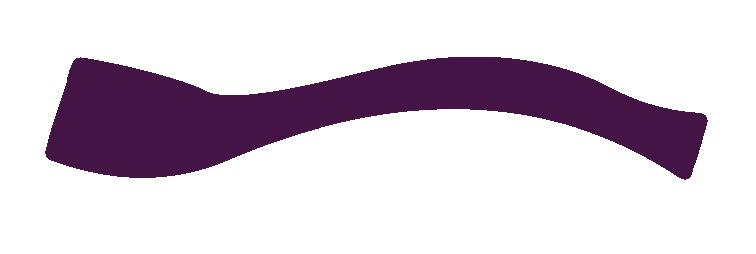



贊助人 PATRON
曾蔭權先生
The Honourable Donald Tsang Yam-kuen
永遠名譽會長
HONORARY LIFE PRESIDENT
邵逸夫爵士 Sir Run Run Shaw
執行委員會 EXECUTIVE COMMITTEE
主席 Chairman
李業廣先生 Mr Charles Y K Lee, GBM GBS JP
副主席 Vice Chairman
許仕仁先生 Mr Rafael S Y Hui, GBM GBS JP
義務司庫 H onorary Treasurer
李思權先生 Mr Billy Li
委員 Members
夏佳理先生 The Hon Ronald Arculli, GBS JP
紀大衛教授 Professor David Gwilt, MBE
查懋成先生 Mr Victor Cha
周永健先生 Mr Anthony Chow SBS JP
黃敏華女士 Ms Nikki Ng
李 義法官 The Hon Mr Justice Ribeiro
詹偉理先生 Mr James Riley
黃鳳嫺女士 Ms Gilly Wong
任志剛先生 Mr Joseph Yam, GBM JP
節目委員會 PROGRAMME COMMITTEE
主席 Chairman
許仕仁先生 Mr Rafael S Y Hui, GBM GBS JP
副主席 Vice Chairman
紀大衛教授 Professor David Gwilt, MBE
委員 Members
盧景文教授 Professor Lo King-man, MBE JP
毛俊輝先生 Mr Fredric Mao, BBS
譚榮邦先生 Mr Tam Wing-pong, SBS JP
姚 珏 女士 Ms Jue Yao
伍日照先生 Mr Daniel Ng
羅志力先生 Mr Peter C L Lo
白諾信先生 Mr Giorgio Biancorosso
榮譽節目顧問 Honorary Programme Advisors
高德禮先生 Mr Douglas Gautier
Dr Peter Hagmann
約瑟.施力先生 Mr Joseph Seelig
財務及管理委員會 FINANCE AND MANAGEMENT COMMITTEE
主席 Chairman
李思權先生 Mr Billy Li
委員 Member
梁國輝先生 Mr Nelson Leong
發展委員會 DEVELOPMENT COMMITTEE
主席 Chairman
查懋成先生 Mr Victor Cha
副主席 Vice Chairman
梁靳羽珊女士 Mrs Leong Yu-san
委員 Members
杜安娜女士 Mrs Igna Dedeu
白碧儀女士 Ms Deborah Biber
廖碧欣女士 Ms Peggy Liao
黃慧玲女士 Ms Whang Hwee Leng
顧問 ADVISORS
鮑 磊先生 Mr Martin Barrow, GBS CBE JP
郭炳江先生 Mr Thomas Kwok, SBS JP
李國寶博士 Dr The Hon David K P Li, GBM GBS JP
梁紹榮夫人 Mrs Mona Leong, SBS BBS MBE JP
名譽法律顧問
HONORARY SOLICITOR
史蒂文生黃律師事務所 Stevenson, Wang & Co
核數師 AUDITOR
羅兵咸永道會計師樓 PricewaterhouseCoopers
香港藝術節基金會
HONG KONG ARTS FESTIVAL TRUST
主席 Chairman
霍 璽先生 Mr Angus H Forsyth
管理人 Trustees
陳達文先生 Mr Darwin Chen, SBS ISO
梁紹榮夫人 Mrs Mona Leong, SBS BBS MBE JP
陳祖澤博士 Dr John C C Chan, GBS JP
www.hk.artsfestival.org
網上追蹤香港藝術節 Follow the HKArtsFestival on
職員 Staff
行政總監 Executive Director
何嘉坤 Tisa Ho
節目 Programme
節目總監 Programme Director
梁掌瑋 Grace Lang
副節目總監 Associate Programme Director
蘇國雲 So Kwok-wan
節目經理 Programme Manager
葉健鈴 Linda Yip
外展經理 Outreach Manager
梁偉然 Ian Leung
助理節目經理 Assistant Programme Manager
汪文鈺 Joy Wang
助理製作經理 Assistant Production Manager
蘇雪凌 Shirley So
節目主任 Programme Officer
李家穎 Becky Lee
市場推廣 Marketing
市場總監 Marketing Director
鄭尚榮 Katy Cheng
市場經理 Marketing Managers
周 怡 Alexia Chow
梁頌怡 Kitty Leung
鍾穎茵 Wendy Chung
助理市場經理(票務)
Assistant Marketing Manager (Ticketing)
梁彩雲 Eppie Leung
發展 Development
發展總監 Development Director
余潔儀 Flora Yu
發展經理 Development Manager
嚴翠芳 Josephine Yim
助理發展經理 Assistant Development Manager
陳艷馨 Eunice Chan
會計 Accounts
會計經理 Accounting Manager
陳綺敏 Katharine Chan
助理會計經理 Assistant Accounting Manager
曾愛明 Ming Jung
會計文員 Accounts Clerk
黃國愛 Bonia Wong
行政 Administration
行政秘書 Executive Secretary
陳詠詩 Heidi Chan




地址 Address: 香港灣仔港灣道2號12樓1205室 Room 1205, 12th Floor, 2 Harbour Road, Wanchai, Hong Kong
電話Tel: 2824 3555 傳真Fax: 2824 3798, 2824 3722 電子郵箱Email: afgen@hkaf.org
節目查詢(辦公時間內) Programme Enquiries (during office hours): 2824 2430
接待員 / 初級秘書 Receptionist / Junior Secretary
李美娟 Virginia Li
辦公室助理 Office Assistant
鄭誠金 Tony Cheng
職員 Staff (合約 contract)
節目 Programme
物流及接待經理 Logistics Manager
金學忠 Elvis King
製作經理 Production Manager
廖卓良 Liu Cheuk-leung
節目經理 Programme Manager
何玉凝 Amy Ho
助理節目經理 Assistant Programme Manager
陳采琦 Kathy Chan
項目經理 Project Manager
林慧茵 Jess Lam
藝術家統籌及項目經理
Artist Coordination and Project Manager
陳韻妍 Vanessa Chan
外展統籌 Outreach Coordinator
陳韻婷 Alyson Chan
外展主任 Outreach Officer
蔡樂庭 Vanessa Tsoi
外展助理 Outreach Assistant
陳慧晶 Ainslee Chan
節目及出版主任 Programme & Publications Officer
曾逸林 Zeng Yilin
技術統籌 Technical Coordinators
黎春成 Anthony Lai
陳寶愉 Bobo Chan
鄭潔儀 Catherine Cheng
陳詠杰 Chan Wing-kit
陳佩儀 Claudia Chan
何美蓮 Meilin Ho
出版 Publication
編輯 Editor
鄺潔冰 Cabbie Kwong
英文編輯 English Editor
魏卓華 Mikel Echevarría
助理編輯 Assistant Editor
陳楚珊 Sharon Chan
市場推廣 Marketing
助理市場經理 Assistant Marketing Manager
陳燕 Lilian Chan
市場主任 Marketing Officer
梁愷樺 Anthea Leung
票務主任 Ticketing Officer
關穎思 Catherine Kwan
客戶服務主任 Customer Services Officers
劉寶軒 Xanthe Lau
楊蘊楹 Flora Yeung
姜嘉敏 Joyce Keung
發展 Development
發展經理 Development Manager
譚穎敏 Myra Tam
Concert Hall, HK Cultural Centre
Grand Theatre, HK Cultural Centre
漢堡芭蕾舞團
《馬勒第三交響曲》
The Hamburg BalletThird Symphony of Gustav Mahler
Studio Theatre, HK Cultural Centre
Concert Hall, HK City Hall
琶音古樂團 L'Arpeggiata / Christina Pluhar
漢堡芭蕾舞團 《 慾望號街車》
The Hamburg BalletA Streetcar Named Desire
奈吉爾.甘迺迪演奏會 Nigel Kennedy Plays Bach
白建宇 - 拉威爾鋼琴獨奏
全集音樂會
Kun Woo Paik Plays Ravel
鄭明勳與皇家阿姆斯特丹
音樂廳樂團
Myung-whun Chung and the Royal Concertgebouw Orchestra
卡麗塔.馬蒂娜女高音獨唱會
Karita Mattila in Recital
約翰博士與Lower 911樂隊
Dr John & The Lower 911
里昂歌劇院芭蕾舞團 Lyon Opera Ballet
《愛之初體驗》 Journey to Home
香港藝術節委約及製作 Commissioned and produced by the HKAF
京劇—馬連良紀念系列 Beijing OperaA Tribute to Laosheng Master Ma Lianliang
Theatre, HK City Hall
徹卡奧維《手塚》
Sidi Larbi Cherkaoui TeZukA
《六月戀人》
June Lovers
香港藝術節委約及製作 Commissioned and produced by the HKAF
Shouson Theatre
Star Hall, KITEC
Auditorium, Kwai Tsing Theatre
《藝裳奇幻世界》 World of WearableArt
Drama Theatre, HKAPA
Black Box Theatre, Kwai Tsing Theatre
Auditorium, Yuen Long Theatre
《野豬》 The Wild Boar
《藝裳奇幻世界》 World of WearableArt
香港藝術節委約及製作 Commissioned and produced by the HKAF
《野豬》 The Wild Boar
京士頓玫瑰劇院 《不可兒戲》 Rose TheatreThe Importance of Being Earnest
琶音古樂團 L'Arpeggiata Christina Pluhar
新民謠.中國風 China Folk Rock
《野豬》 The Wild Boar
《示範單位》
《蜂》 The Bee
粵劇《搜書院》 Cantonese OperaSearching the Academy
Show Flat
香港藝術節委約及製作 Commissioned and produced by the HKAF
香港賽馬會當代舞蹈平台系列 Hong Kong Jockey Club Contemporary Dance Series
十六合唱團及古樂團 — 基斯杜化士
The SixteenHarry Christophers
巴伐利亞國立歌劇院 《女人心》
Bavarian State Opera Così Fan Tutte
蒙地卡羅芭蕾舞團 《仲夏夜之夢》
Monte-Carlo BalletLe Songe
沙漠搖滾塔里溫
Tinariwen
巴伐利亞電台交響樂團
Bavarian Radio Symphony Orchestra
蒙地卡羅芭蕾舞團 《仲夏夜之夢》
Monte-Carlo BalletLe Songe
節目1 Programme 1
香港藝術節委約及製作 Commissioned and produced by the HKAF
香港小交響樂團
《如夢逝水年華》 Hong Kong SinfoniettaLa Valse Remembered
《示範單位》
Show Flat
粵劇 — 折子戲精選 Cantonese OperaExcerpts of selected repertoires 《機器人幻想曲》 Sans Objet by Aurelien Bory
《4.48精神崩潰》 TR Warszawa Theatre 4.48 Psychosis
藝子與舞子 The Geisha of Gion
瑞信新晉藝術家系列 CREDIT SUISSE EMERGING ARTISTS SERIES
馬丁.史岱費爾德 鋼琴獨奏會 Martin Stadtfeld Piano Recital
巴維.哈斯四重奏 Pavel Haas Quartet
《山海經傳》 Of Mountains and Seas
香港藝術節委約及製作 Commissioned and produced by the HKAF
A Play Reading 座談會 Symposium 大師班 Masterclasses 17/2 卡麗塔.馬蒂娜歌唱大師班 Karita Mattila Voice Masterclass 23/2 巴維.哈斯四重奏大師班 Pavel Haas Quartet Masterclass 25/2 《彌賽亞》工作坊 Messiah — Workshop 2/3
石坂團十郎大提琴獨奏會 Danjulo Ishizaka Cello Recital
埃克森美孚新視野 EXXONMOBILE VISION
周樂娉與周樂婷鋼琴二重奏音樂會 Chau Lok-ping and Chau Lok-ting Piano Duo Recital
香港賽馬會當代舞蹈平台系列 Hong Kong Jockey Club Contemporary Dance Series
節目2 Programme 2
香港藝術節委約及製作 Commissioned and produced by the HKAF
香港中樂團「樂旅中國VI」 Hong Kong Chinese OrchestraMusic About China VI
布利斯托爾老域劇團 《神醫》
Bristol Old Vic Faith Healer
亞太舞蹈平台 Asia Pacific Dance Platform
多米拿堤合唱團 Chamber Choir Dominante
法國北方布夫劇場彼得.布祿克的《魔笛》 Theatre des Bouffes du Nord - A Magic Flute
Chau Lok-ping and Chau Lok-ting Piano Duo Recital
布利斯托爾老域劇團 《神醫》
Bristol Old Vic Faith Healer
《香港式離婚》(重演) The Truth About Lying (Re-run)
邵俊傑與友人敲擊音樂會 Louis Siu and Friends Percussion Recital
多米拿堤合唱團 Dominante 《泰特斯》(2012) Titus Andronicus (2012)
香港藝術節委約 Commissioned by the Hong Kong Arts Festival
